10 AWESOME Link Building Tools
Written by Brian Dean

You’re about to see the 10 best link building tools.
In fact, I’ve used these exact tools to get backlinks from sites like Entrepreneur.com:
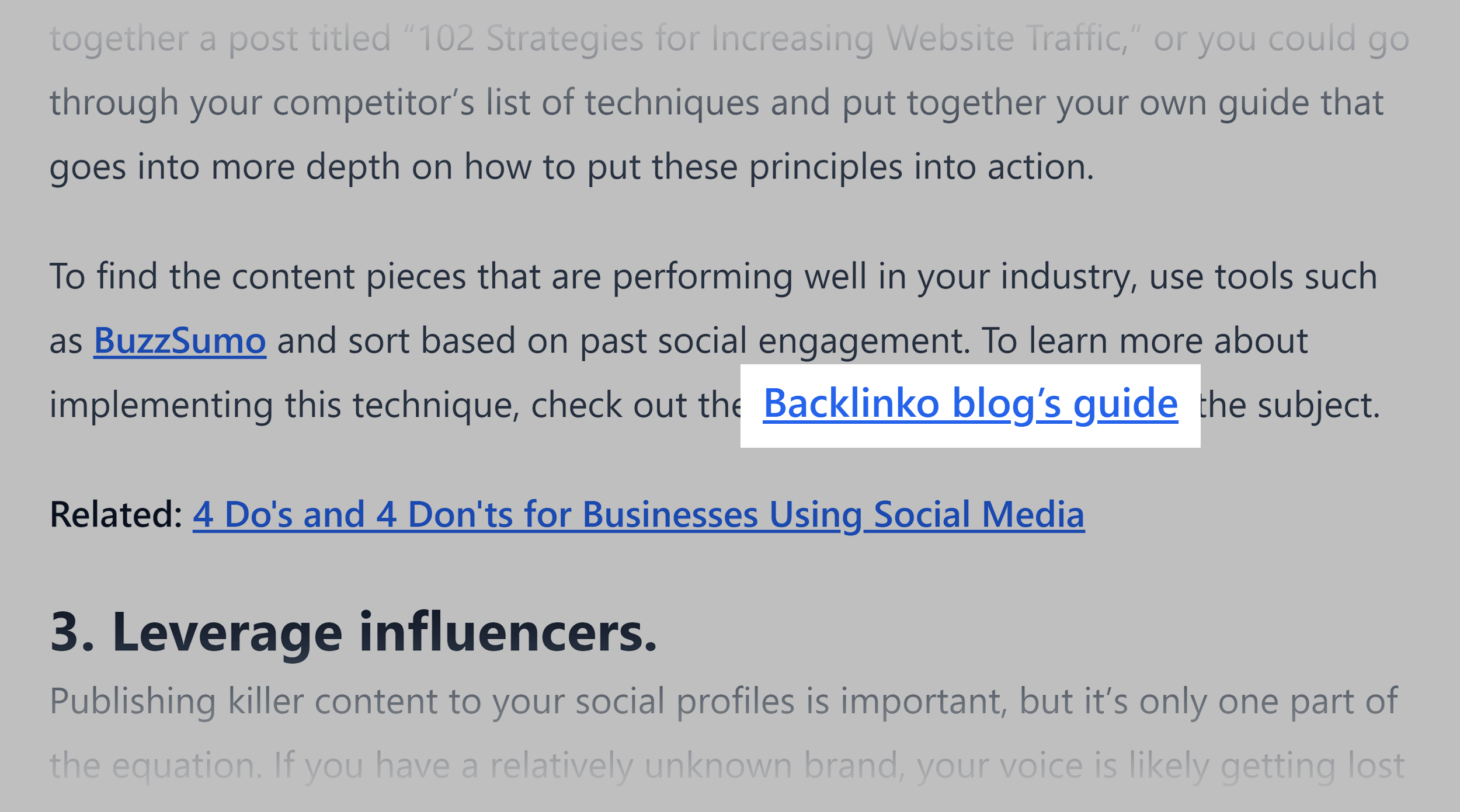
And even Forbes:
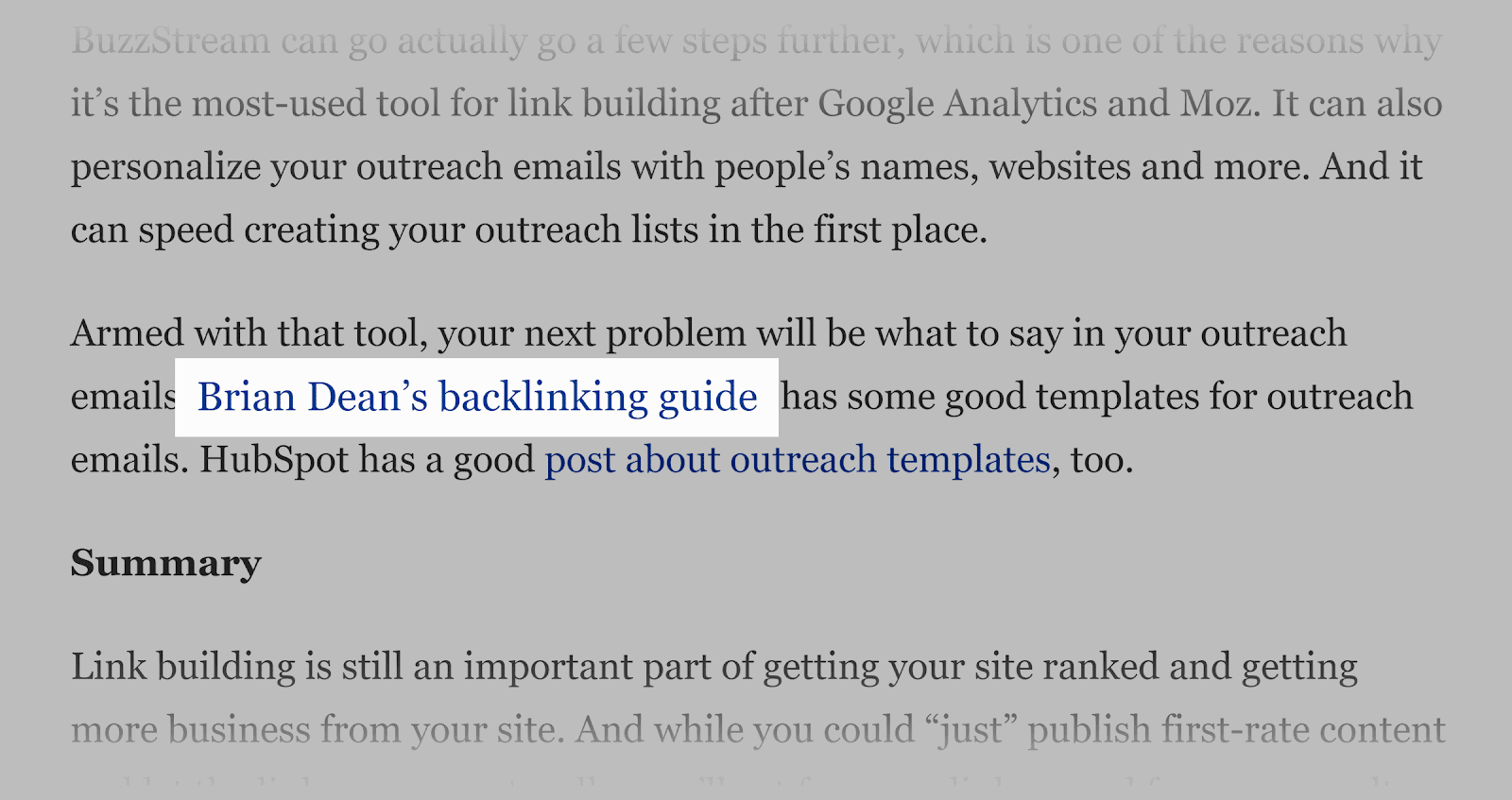
With that, it’s time to reveal my favorite link-building and outreach tools.
1. Semrush
World’s fastest backlink discovery platform.
Semrush is my go-to tool for all things SEO.
Including link building.
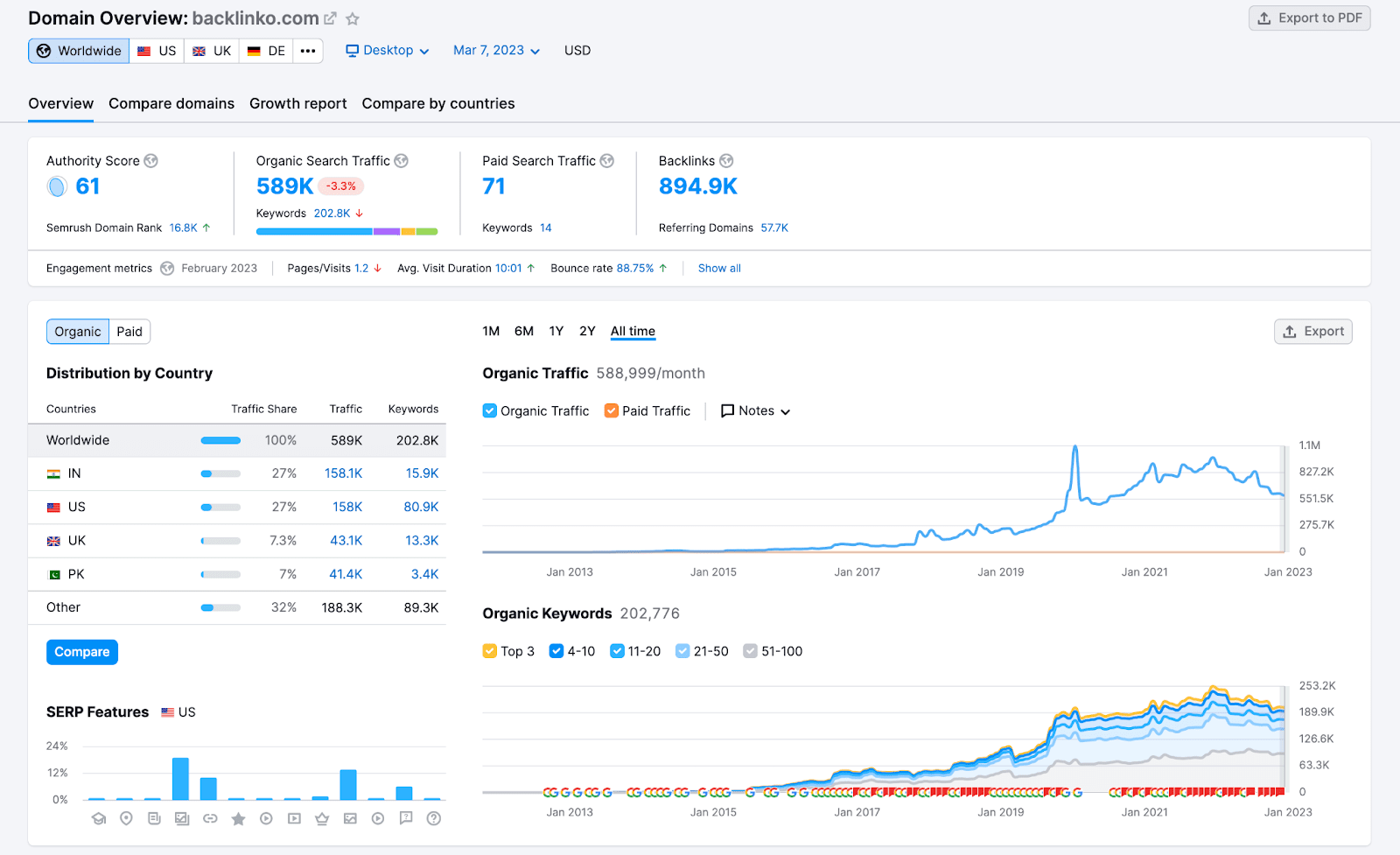
What makes Semrush unique is the quality of its backlinks data.
Apart from links, Semrush also has a TON of other features like:
- A solid Keyword research tool
- On-page SEO checker
- Position tracking
- Content optimization tool
Their interface is clean and easy to navigate through all their tools.
Pricing: $139.95-$499.95 per month
My favorite feature: Link Building Tool
Semrush comes with a built-in outreach tool.
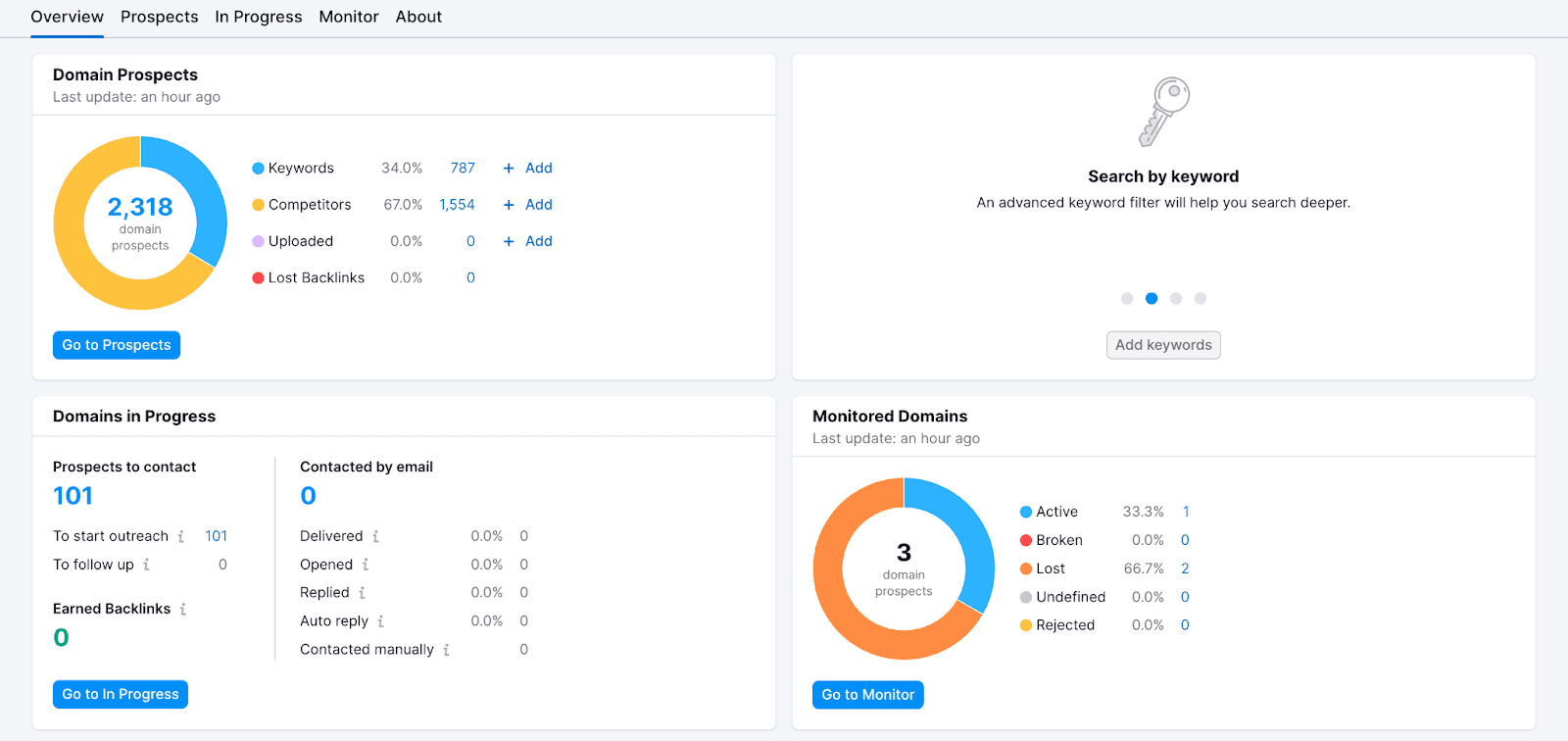
You can find prospects, prepare your outreach sequence, and track your campaigns in minutes.
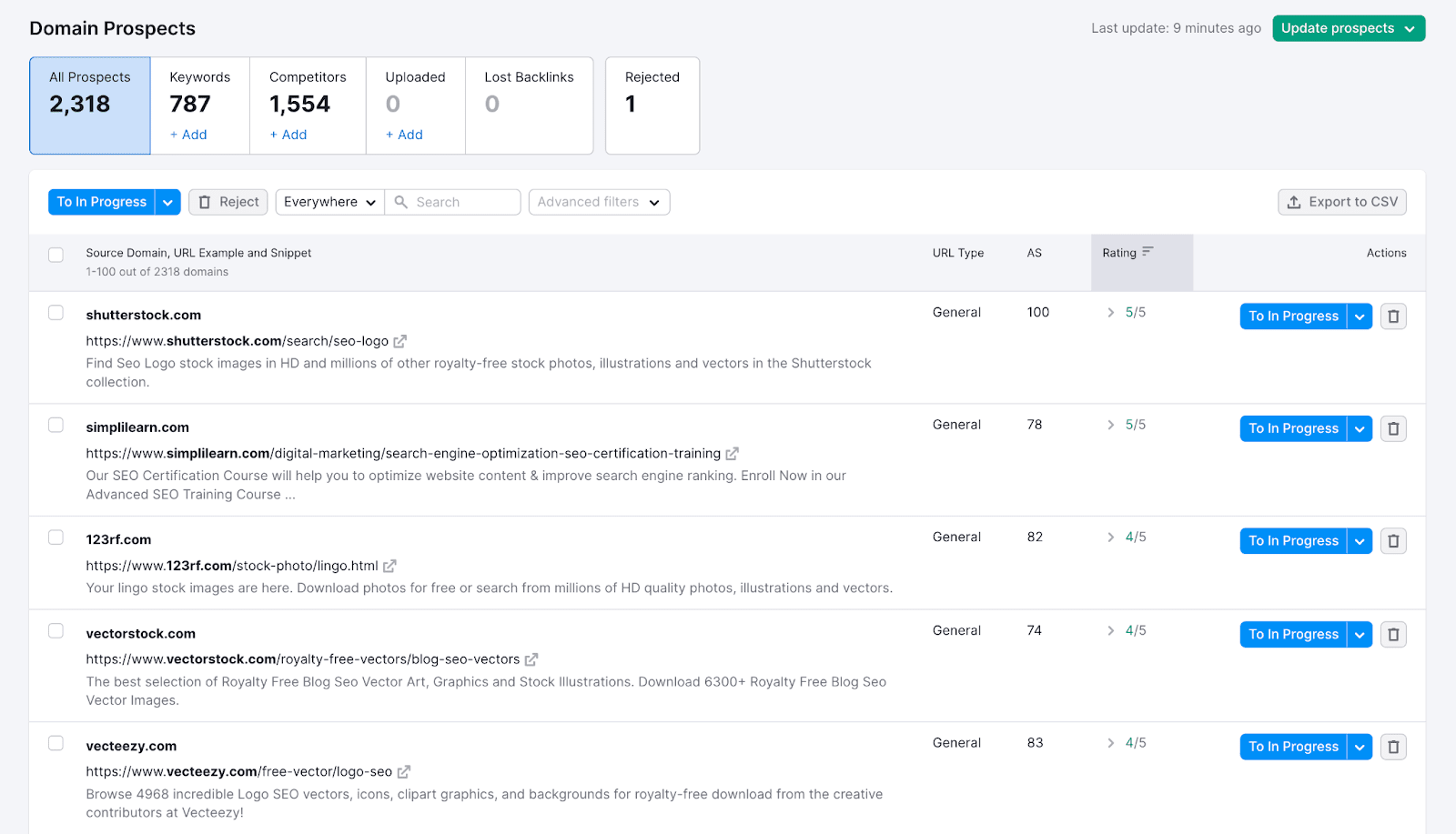
It also keeps a tab on your backlinks and notifies you if they’re removed.
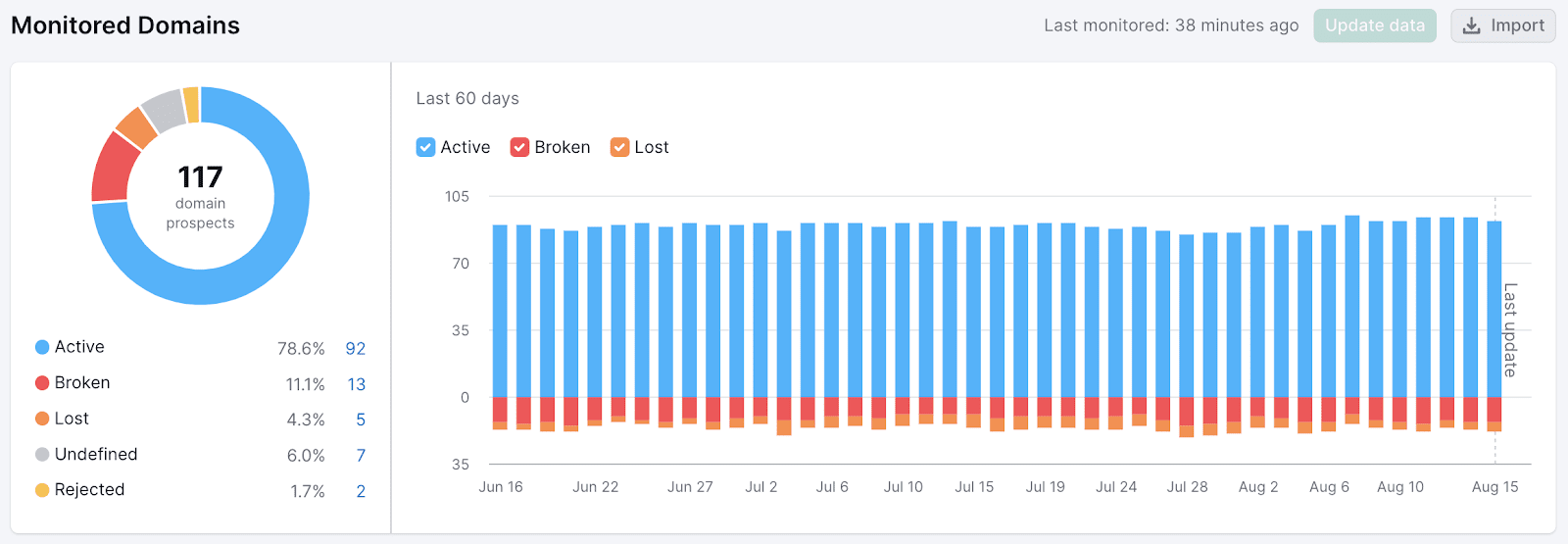
If you want to learn more about other features of Semrush, check out my Semrush guide.
The bottom line
If you can only invest in one link building tool, it should be Semrush.
2. Pitchbox
Use workflows that walk you through the outreach process.
Pitchbox is an outreach platform built for advanced link builders.
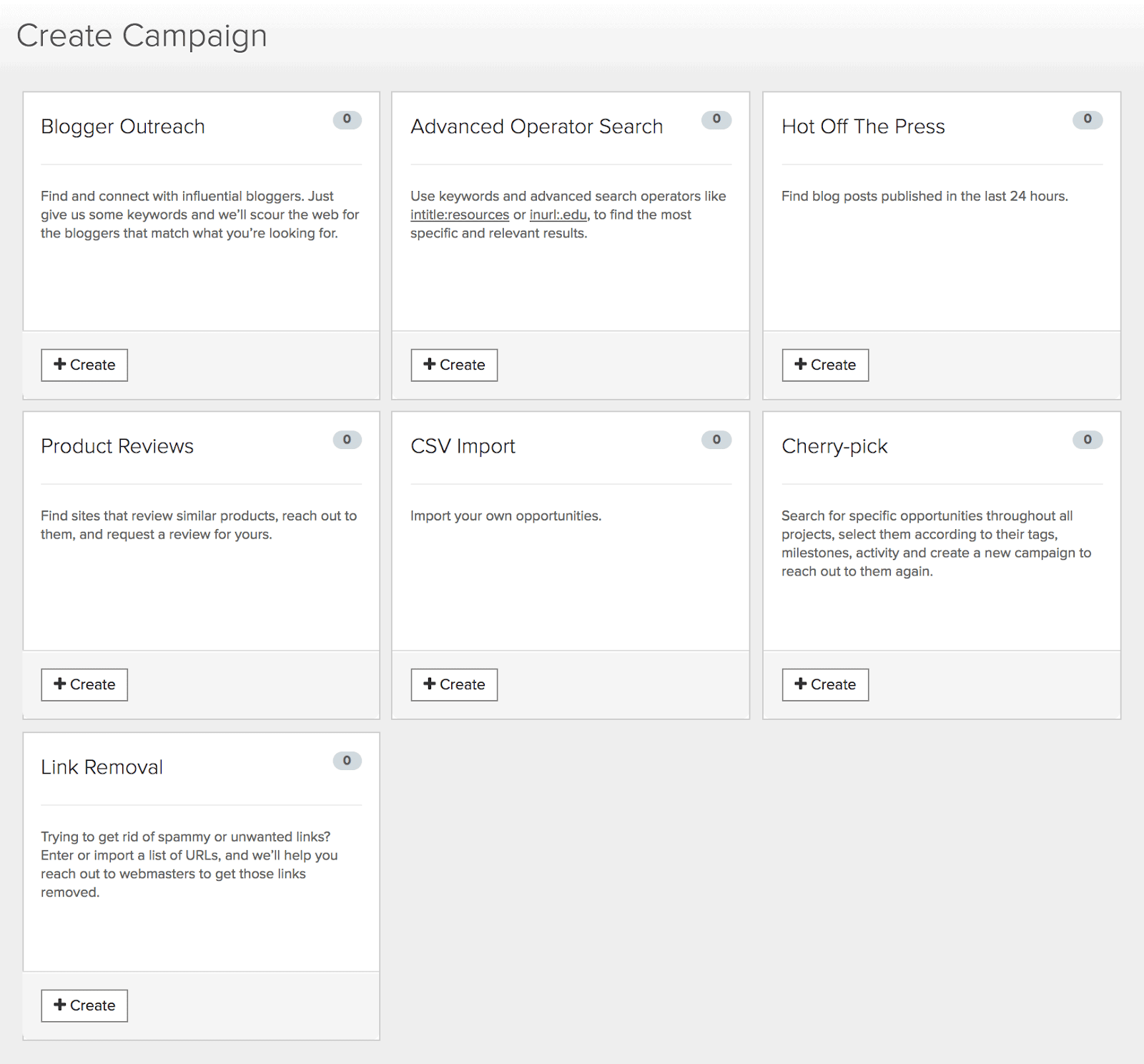
Once you start a campaign, it walks you through all the steps to find prospects and grab contact info.
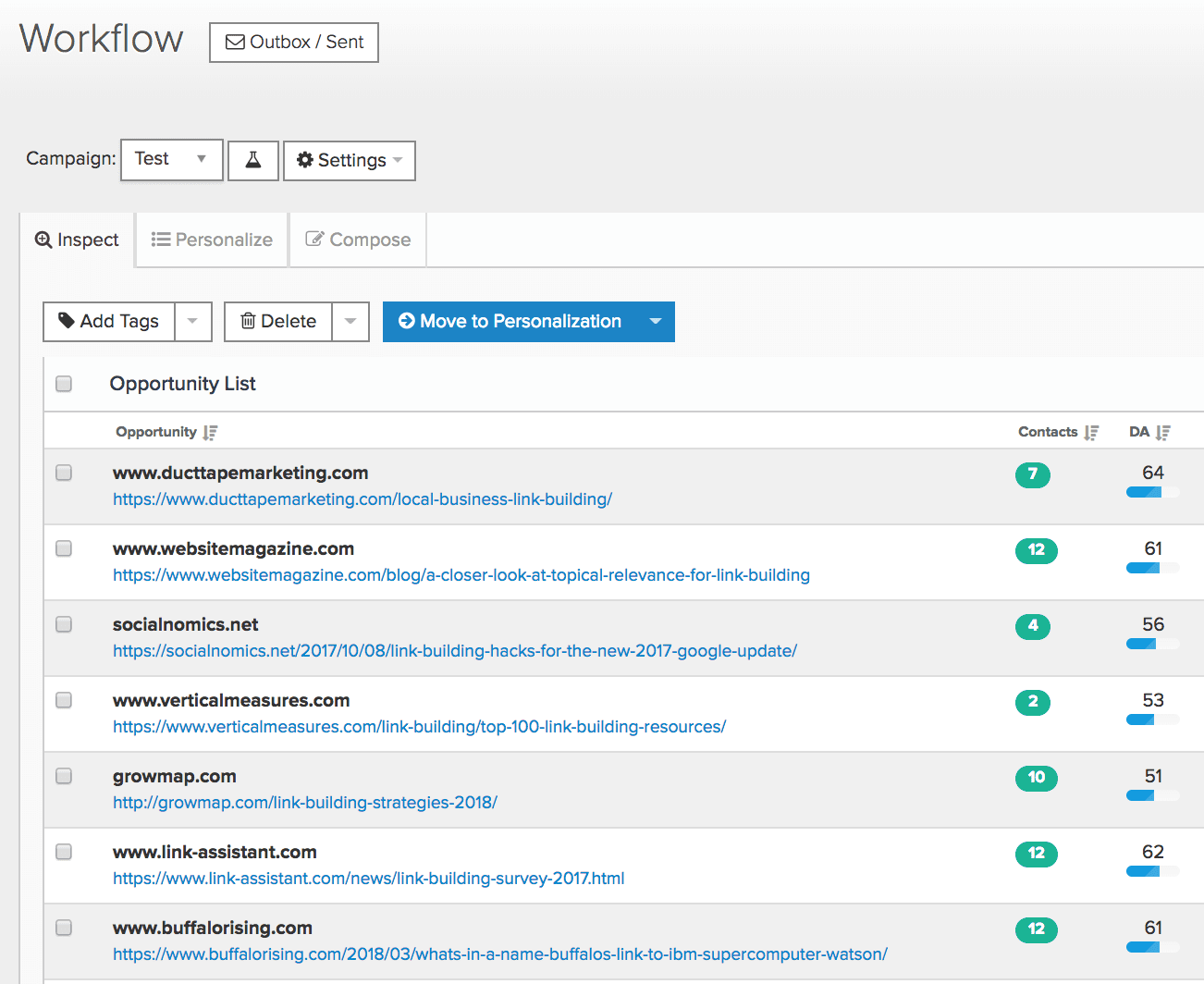
What’s neat about Pitchbox is that several people can participate in the same campaign.
For example, you can delegate specific team members to ONLY compose emails and others – ONLY to personalize them.
Pricing: $550-$1500 per month (annual commitment)
My Favorite Feature: Metrics Filters
This feature helps filter your results by specific quality metrics.
You can filter by Majestic Citation Flow & Trust Flow, and Moz metrics (Page Authority and Domain Authority).
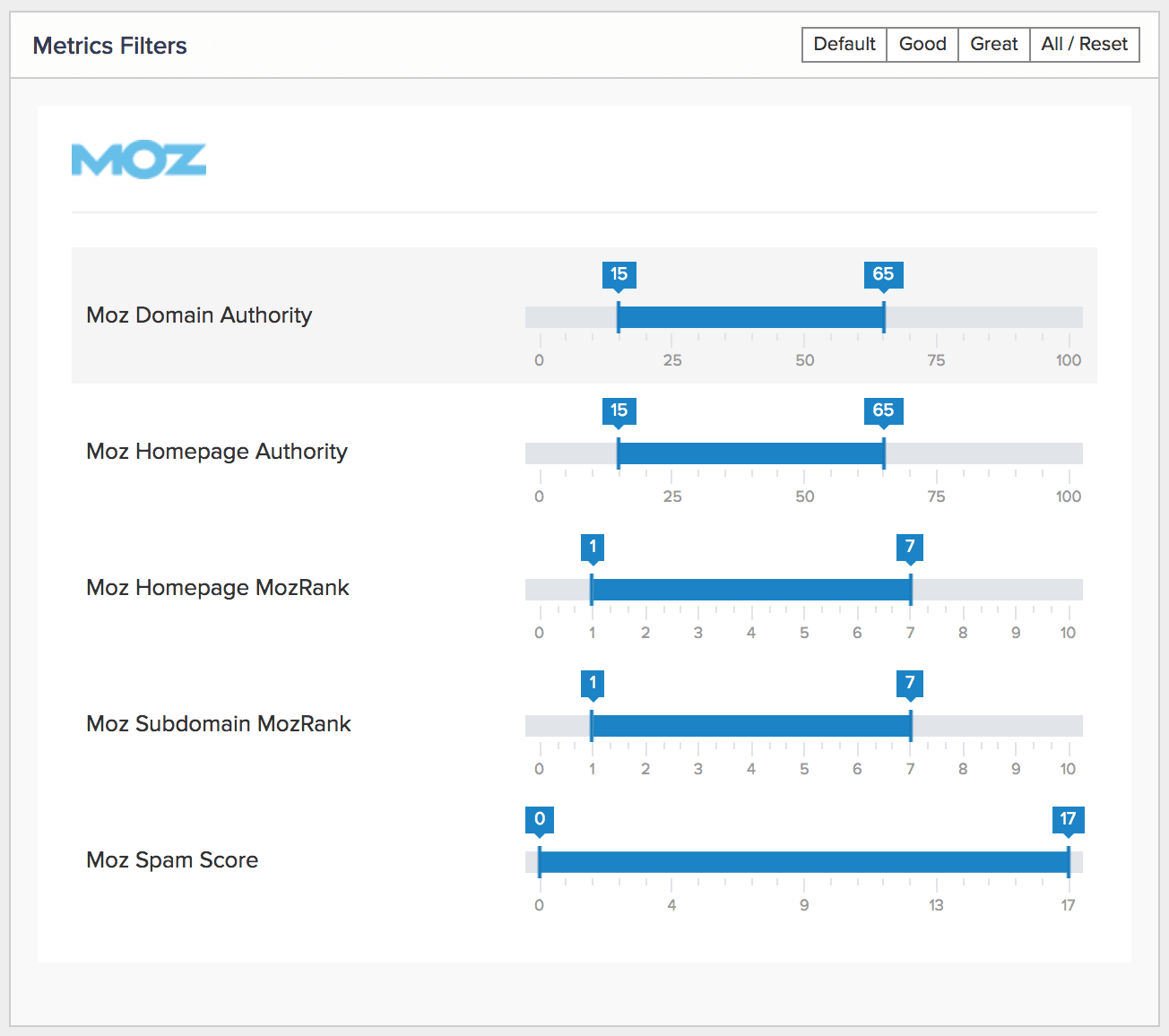
The Bottom line
Pitchbox combines “easy to use” and “powerful features” into a single piece of link building software. It is not the cheapest tool out there, but I highly recommend it if you have a large outreach team.
3. Respona
Full-suite link building outreach platform.
Respona is a powerful link building outreach platform.
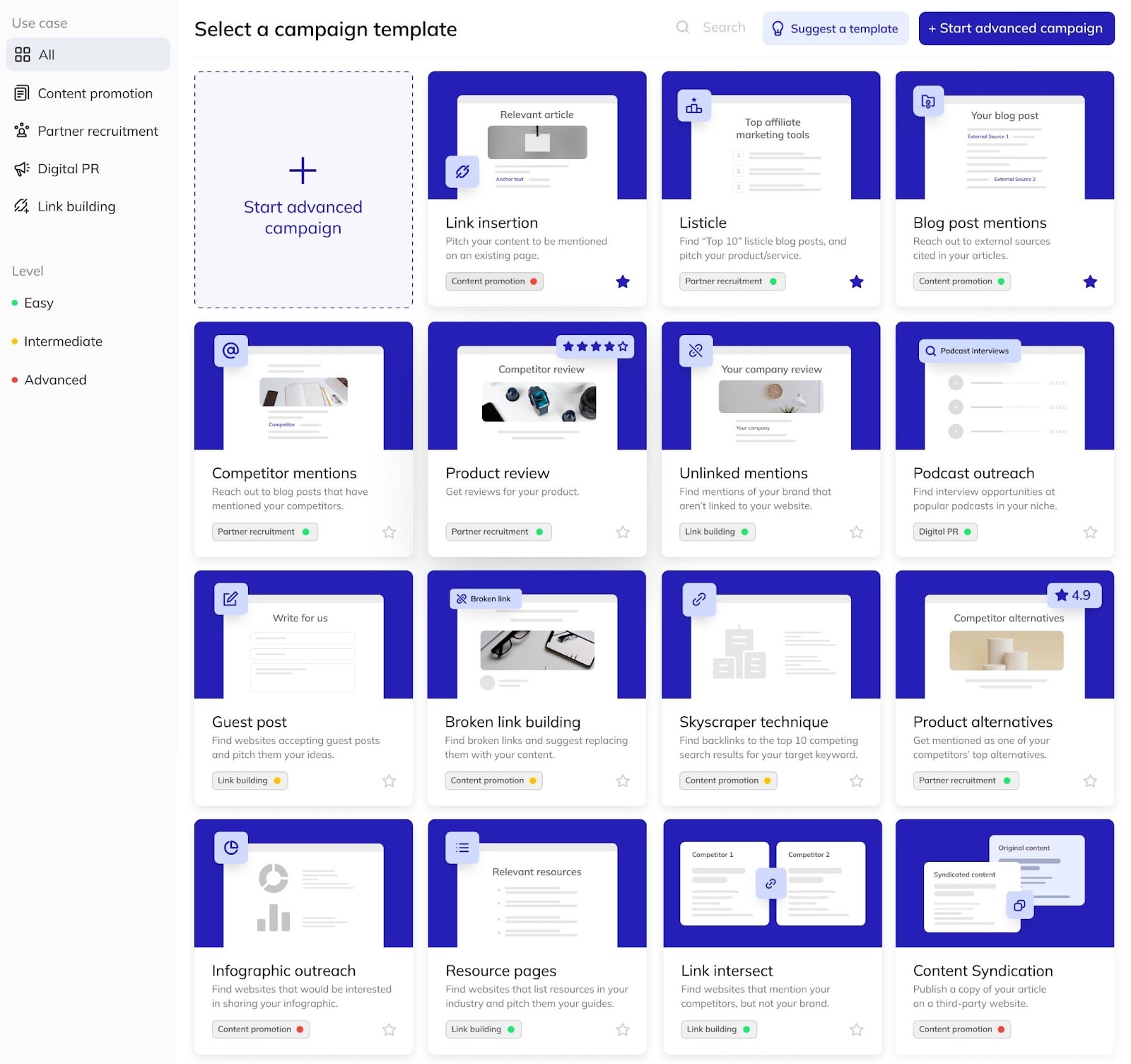
There are LOTS of pre-built campaigns to choose from.
A few of my favorites are:
- Skyscraper Technique – you input competitor articles, they give you a list of URLs linking to them.
- Product Review – you input competitor domains, they give you a list of blogs that recently reviewed them.
- Guest Post – you input topics, they give you a list of websites accepting guest posts.
- Podcast Outreach – you input a person in your industry, they give you all the podcasts they’ve been featured on.
- Resource pages – you input keywords, they give you top resource listicles on those topics.
Once you choose a template, it walks you through the entire process – from finding high-quality opportunities and getting contact info to sending personalized emails.
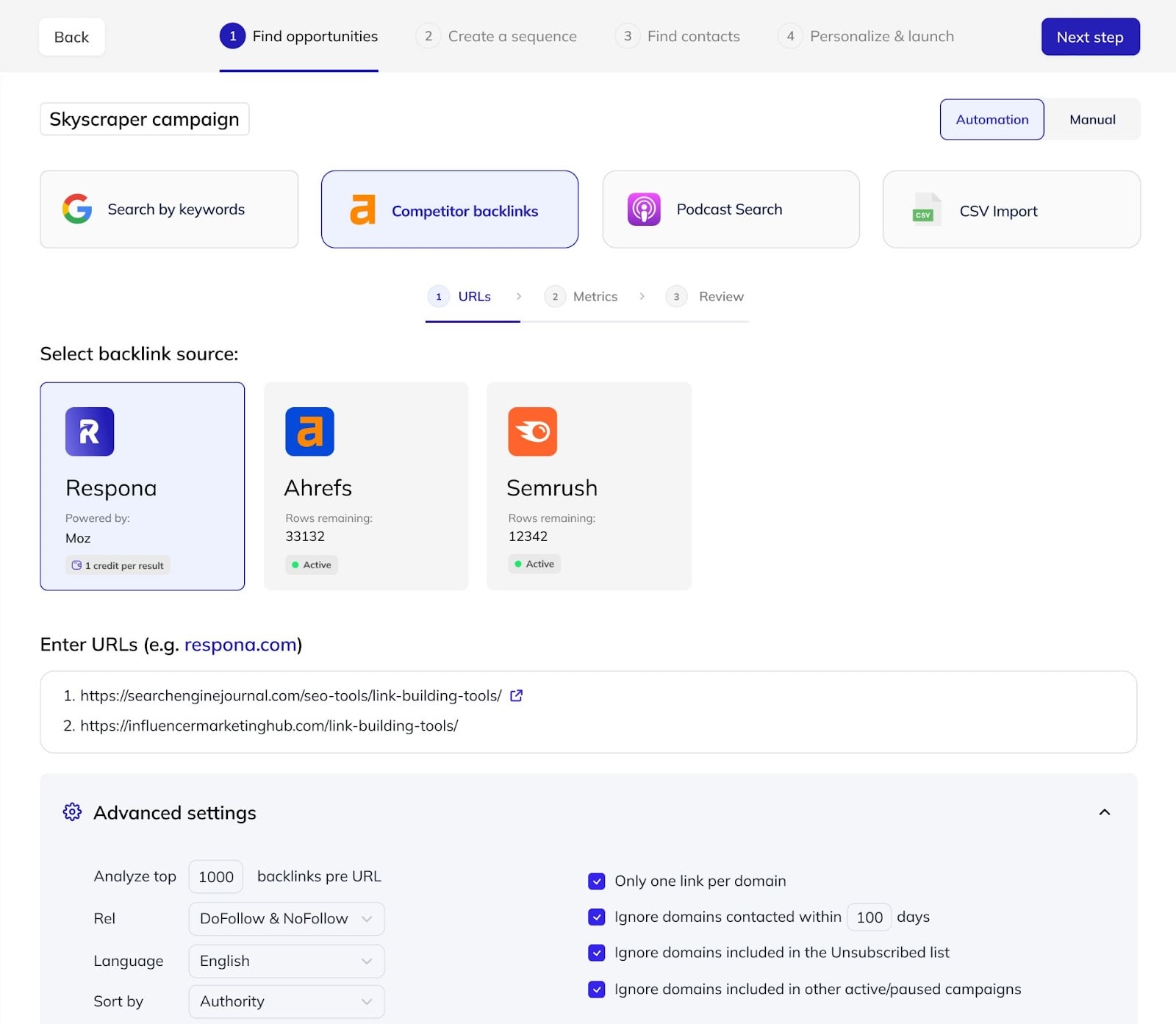
Pricing: $99-$399 per month
My favorite feature: Automated contact finder
Respona automatically finds the right person for each website – including their verified email and Linkedin profile.
No more reaching out to support emails.
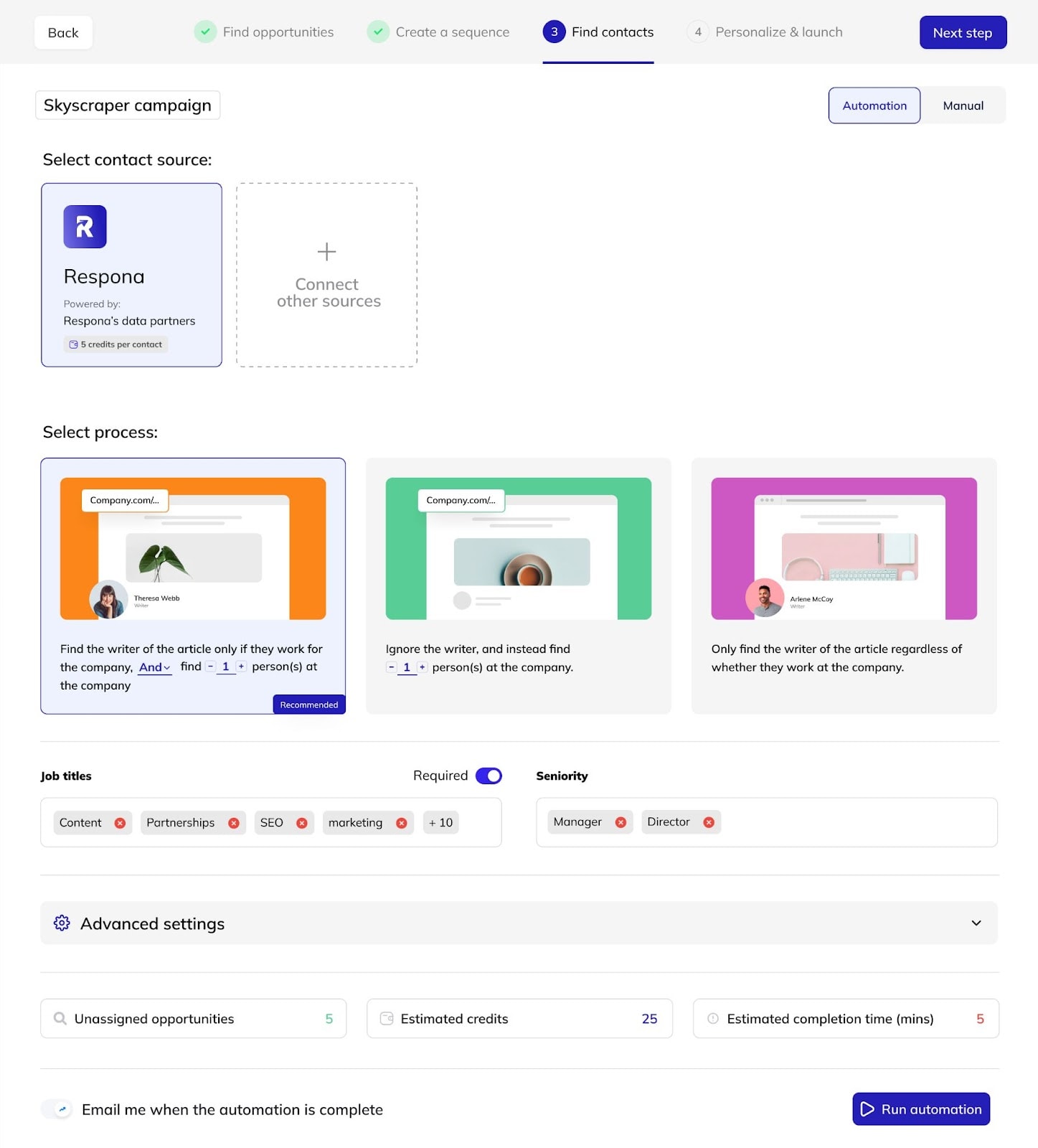
The bottom line
Respona is a powerful link building platform for agencies and in-house teams. Its automation features save a ton of time while running outreach campaigns at scale.
4. Buzzstream
Keep track of your relationships.
BuzzStream is an outreach CRM that helps you stay organized with link building.
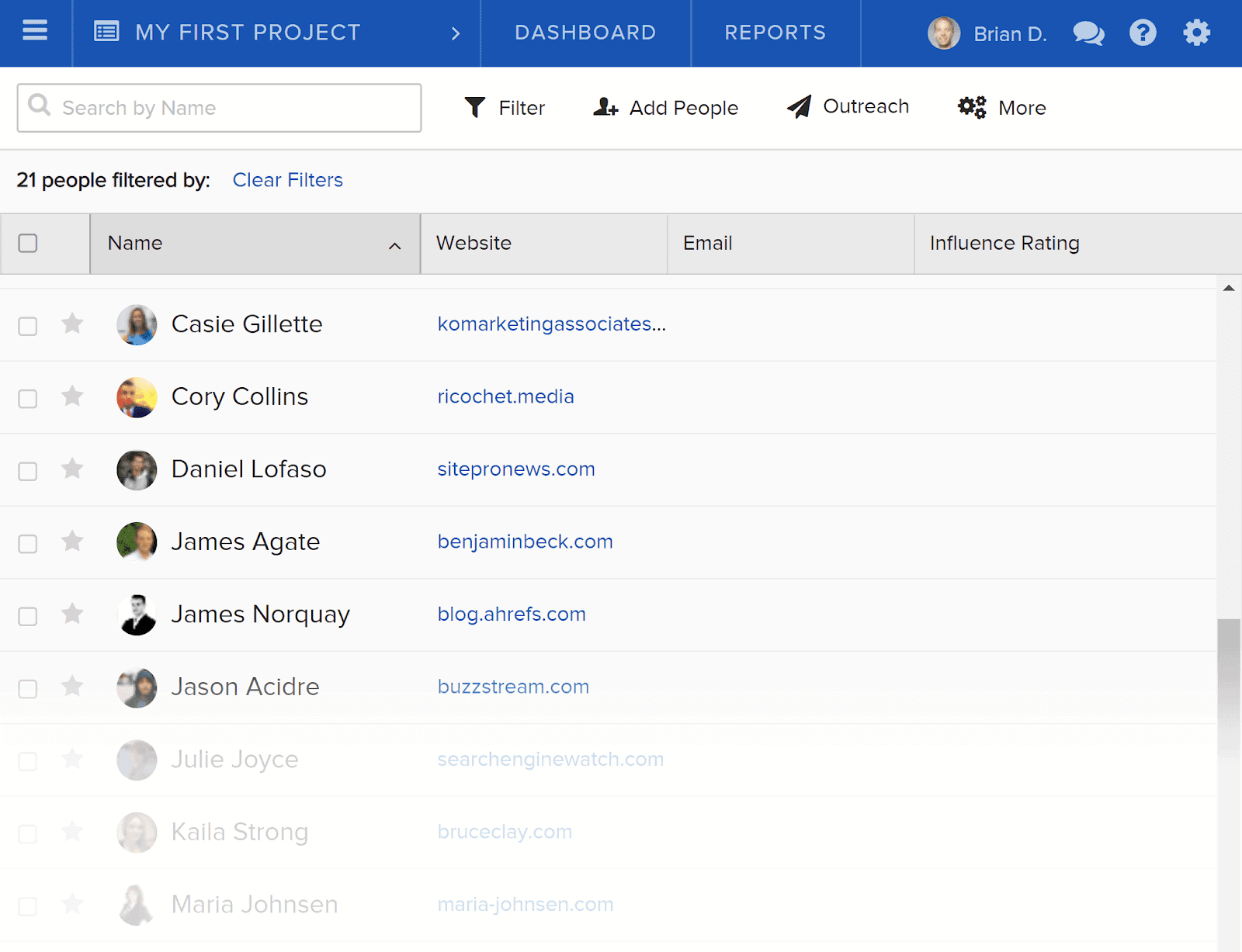
Instead of spreadsheets and random Gmail inboxes, you can use BuzzStream to track conversations and manage campaigns across multiple projects.
Arguably the best feature of the entire platform is the Buzzmarker Chrome extension.
It automatically scans the site you’re on for any email address or contact page.
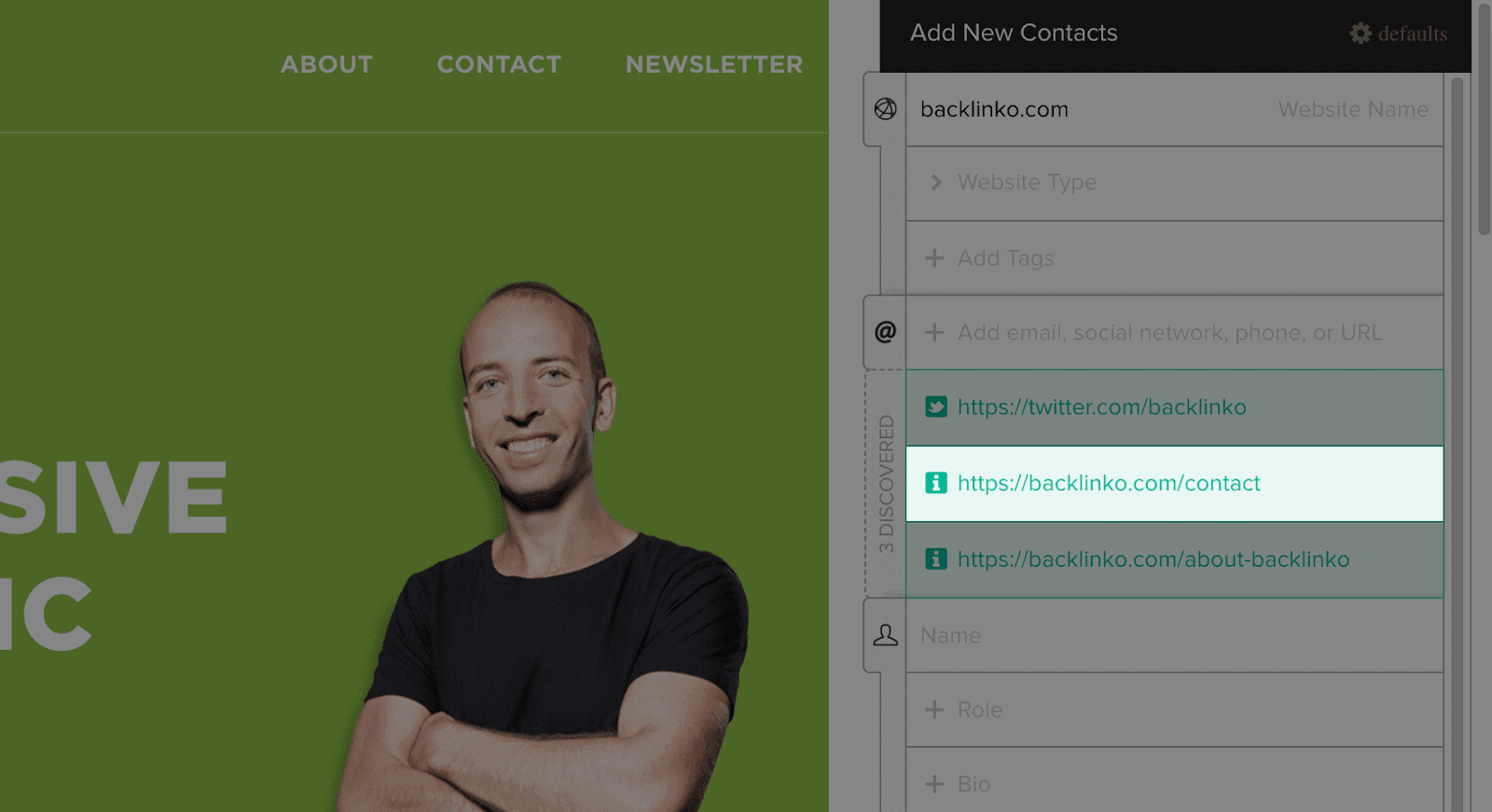
Pricing: $24-$999 per month
My Favorite Feature: Custom Fields
I view custom fields as the bread and butter of BuzzStream. They let you organize and customize campaigns in any way you want.
My favorite custom field is the Relationship Stage. It means: “what is our current status with that person?”
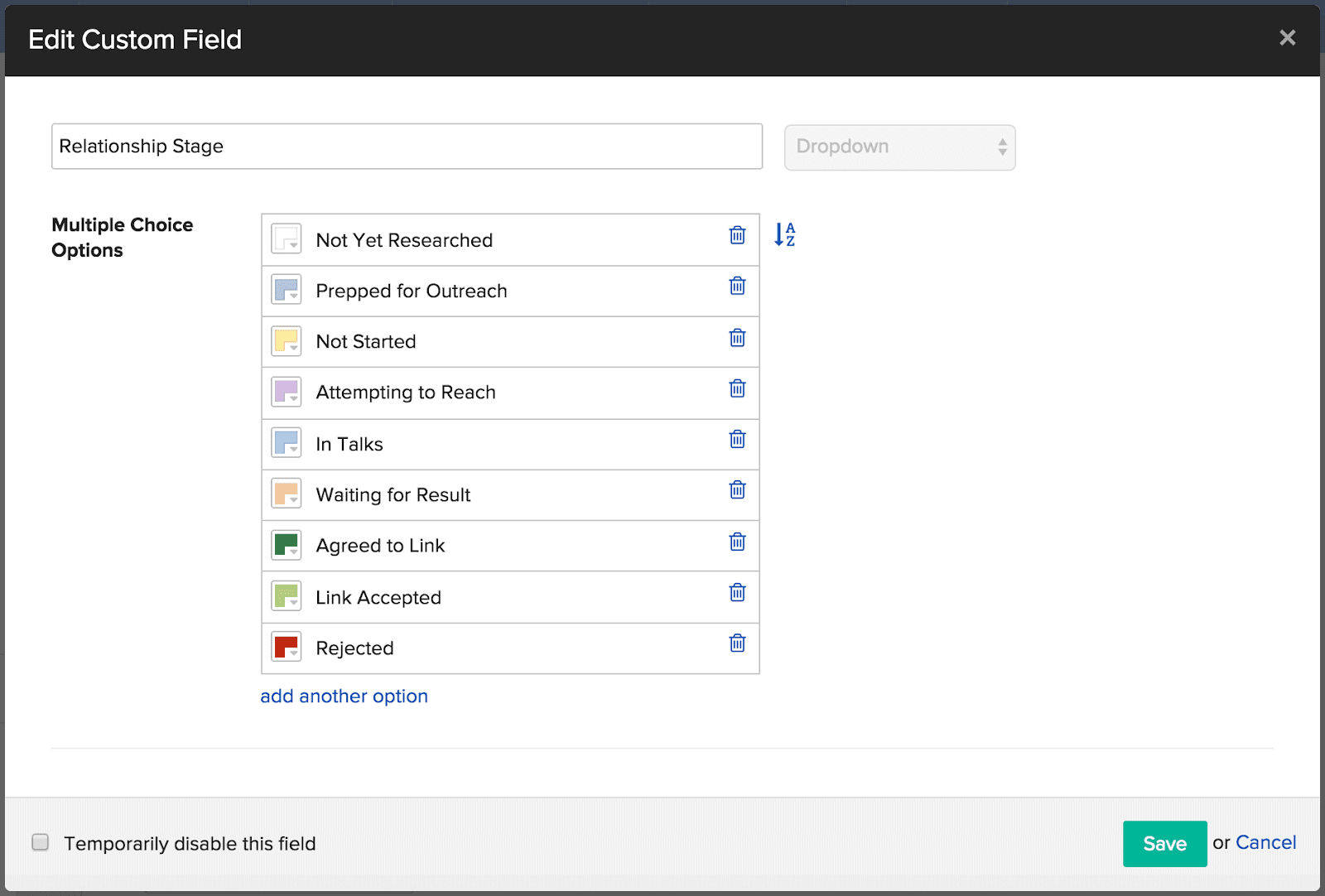
BuzzStream has many other cool features I didn’t have room to cover here. But if you want to learn more, I recommend reading my BuzzStream review.
The bottom line
BuzzStream is one of my favorite link building CRMs. If you do a lot of outreach or work with a team of link builders, it can help you keep track of your outreach.
5. Hunter
Find accurate email addresses in seconds.
After trying over 25 different tools for finding contact info, I can confidently say that Hunter.io is one of the best.
It’s lightning-fast, and the contact info you get from it is insanely accurate.
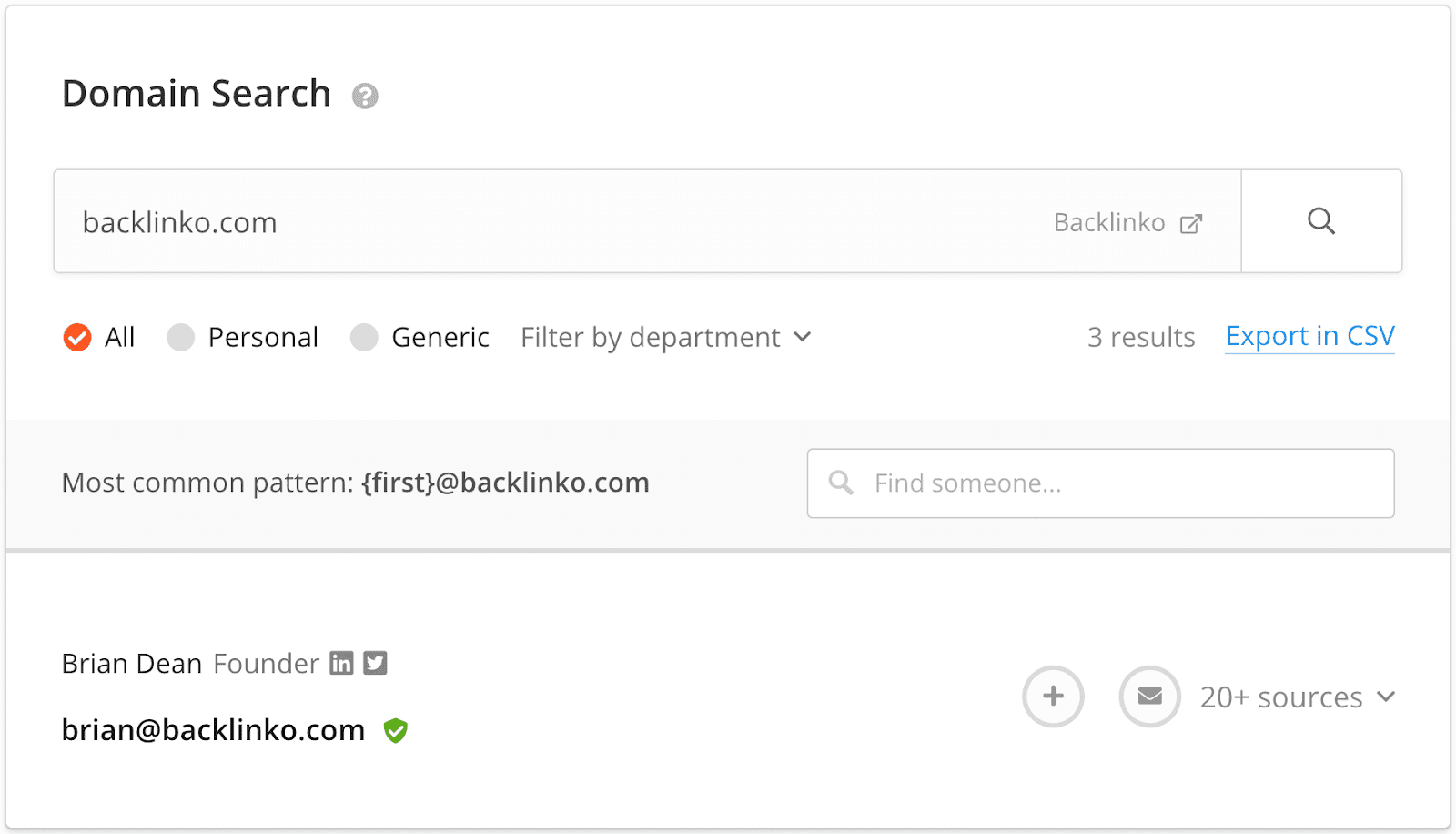
That’s because Hunter doesn’t just scrape a single website for email addresses. Instead, it pulls data from several different sources.
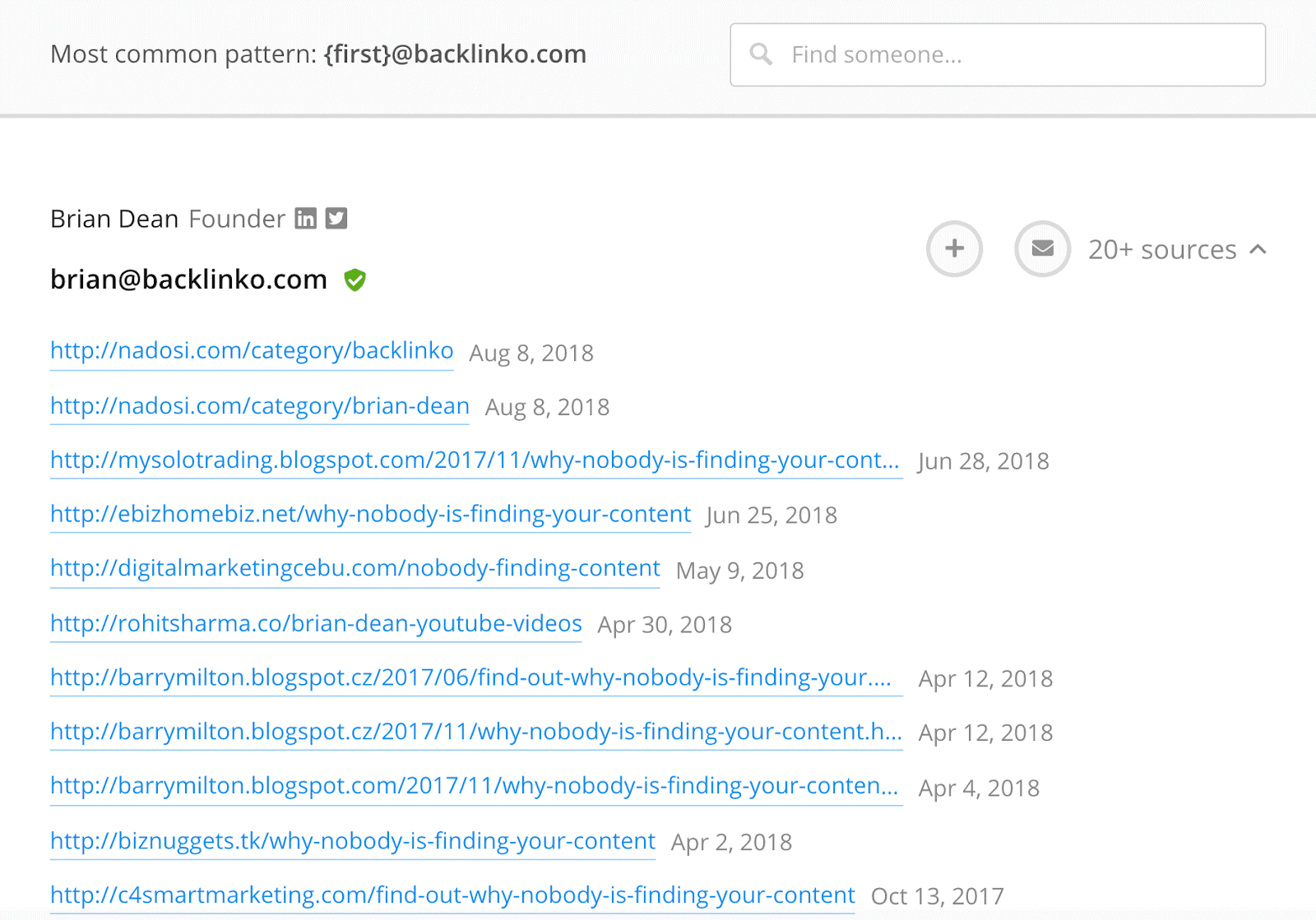
Pricing: Free-$399 per month
My Favorite Feature: Email Verification
Hunter automatically verifies each email that it gives you:
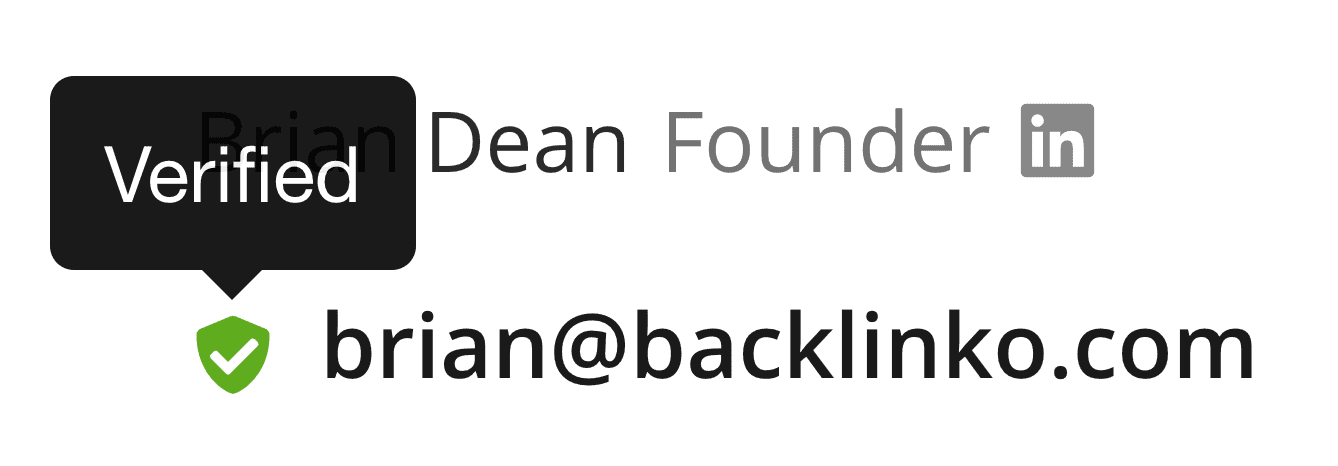
That way, you know the inbox is still active BEFORE you hit “send.”
(You can also bulk upload email addresses for verification.)
The bottom line
When it comes to finding email addresses for outreach, it’s hard to beat Hunter’s accuracy.
6. HARO (Help A Reporter Out)
Get featured in upcoming news articles.
HARO is the PR industry’s version of Tinder.
You can connect with bloggers and journalists who need sources while getting links and exposure for yourself.

How does it work?
Once you register as a source, HARO sends you daily emails with dozens of questions from writers needing expert insights.

For example:
I saw a question from a writer asking: “What’s the difference between graphic design and web design?”
So I responded with this pitch:

A few days later, I got this link from an education site (76 authority score).

Not too bad.
Pricing: Free – $149/month.
My favorite feature: Head Start
Time is of the essence when responding to HARO questions.
Your pitch is much more likely to be seen if you’re among the first respondents.
“Head Start” (paid feature) notifies you of press opportunities before everyone else.
The bottom line
HARO is one of the best ways to build high-authority backlinks at scale.
7. Buzzsumo
Discover influential bloggers in your niche.
Even though BuzzSumo is designed for content marketing, many SEO pros use it too.
Here’s how:
First, BuzzSumo makes it easy to create content that people WANT to link to.
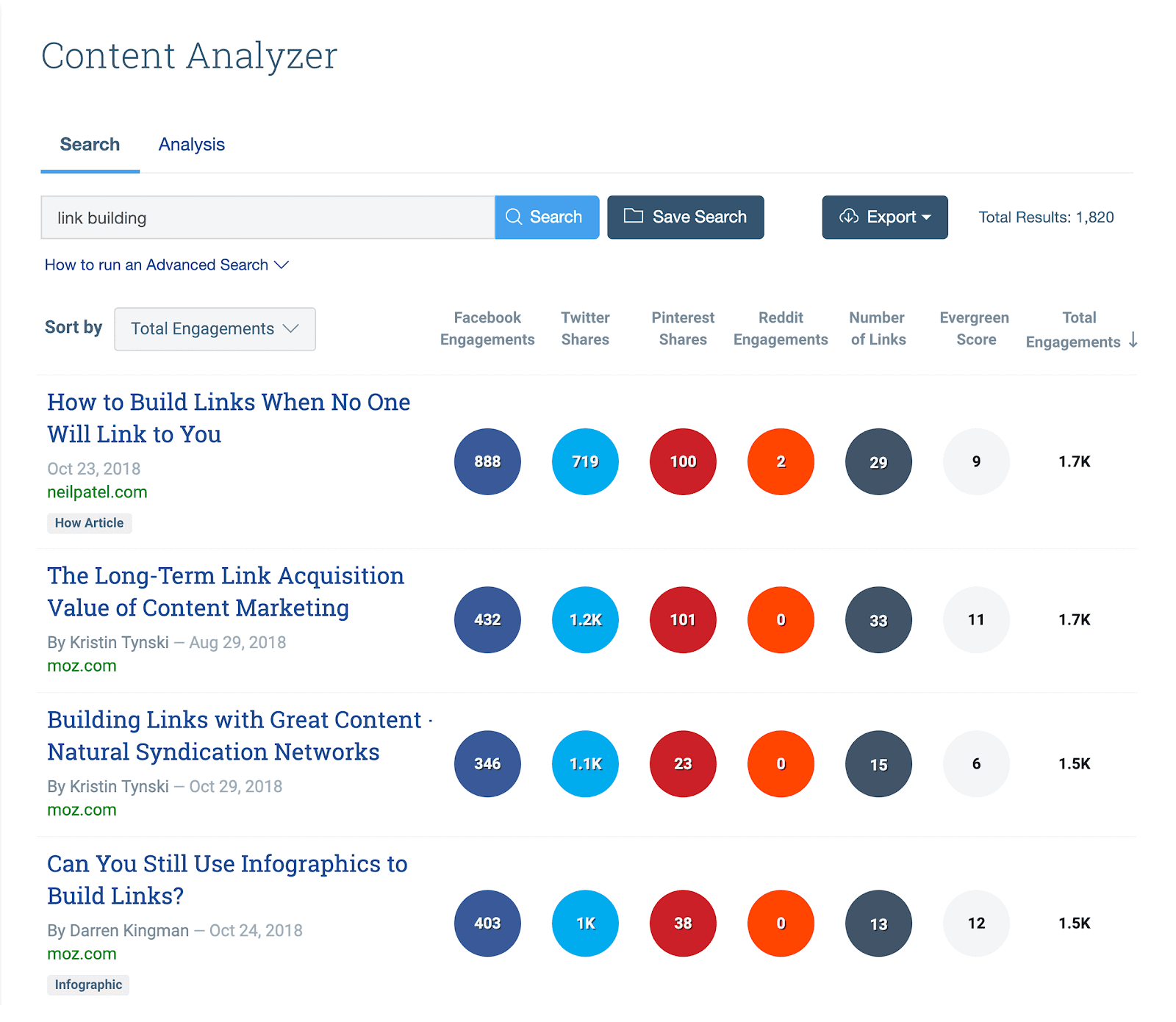
Second, you can use BuzzSumo to find influencers in your niche that recently shared your competitor’s content:
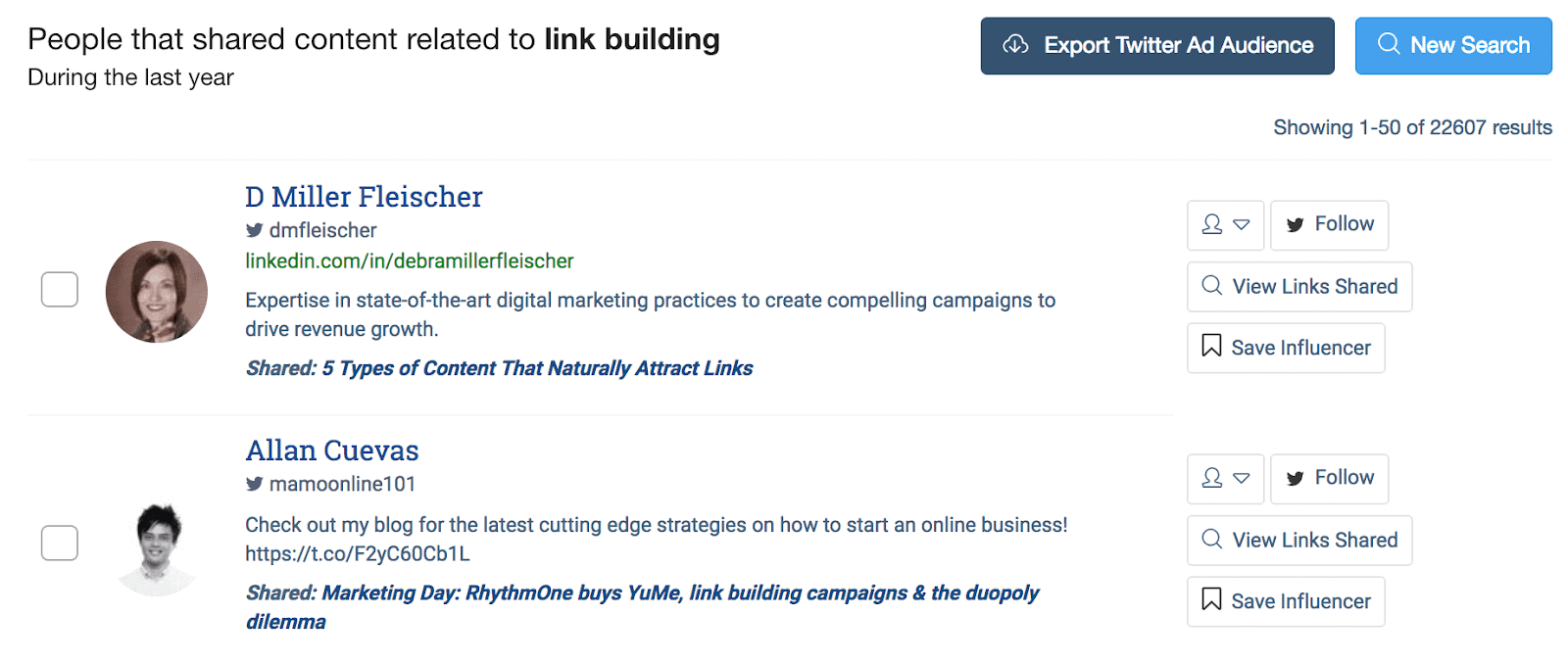
(Which means they’re likely to share your stuff… and link to it.)
Pricing: $119-$999 per month.
My Favorite Feature: Brand Mentions
Think of Buzzsumo’s “Brand Mentions” as Google Alerts on steroids.
You can create a brand alert for you and your competitors.
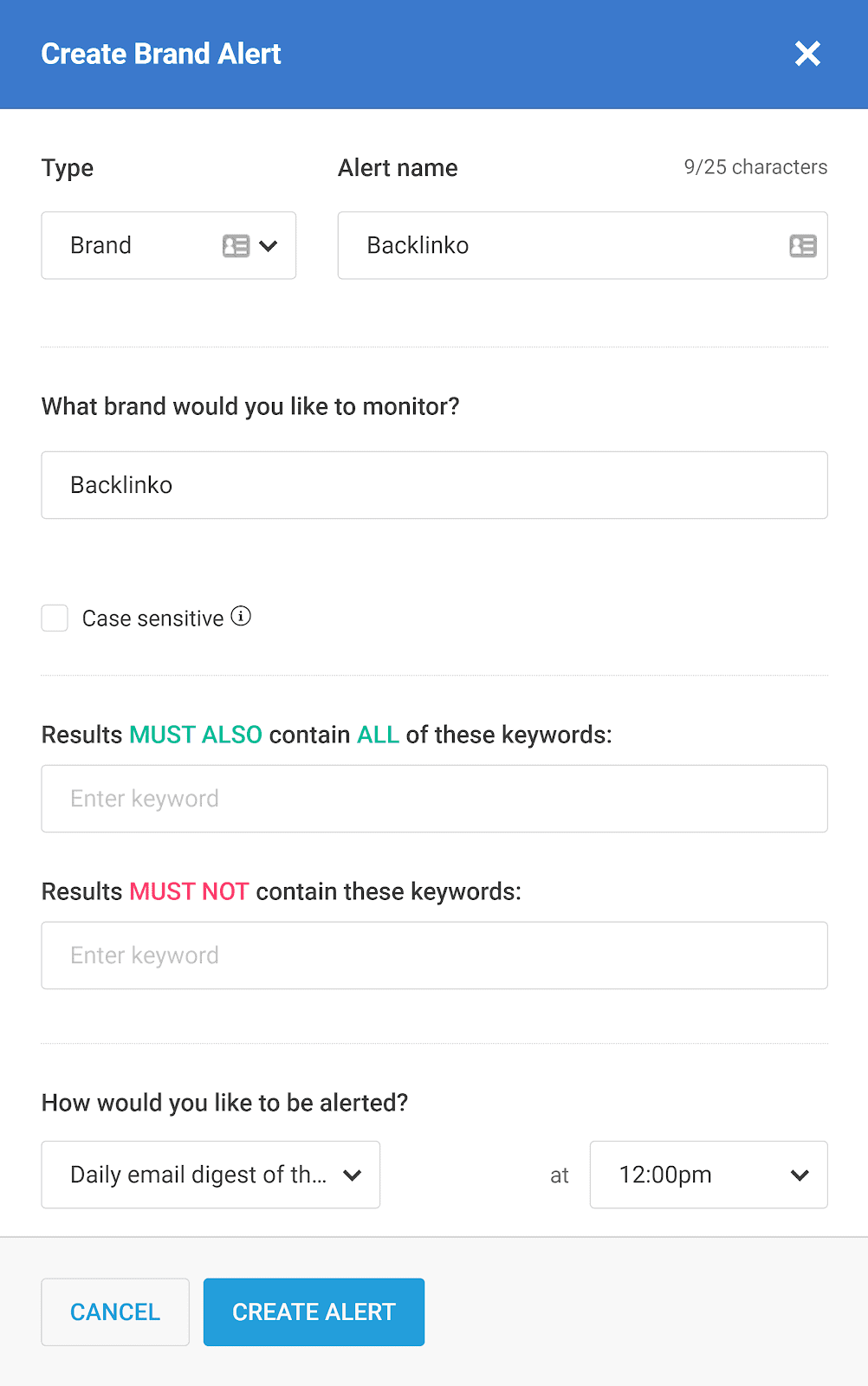
And it’ll show you new blogs and news articles that mention your brand.
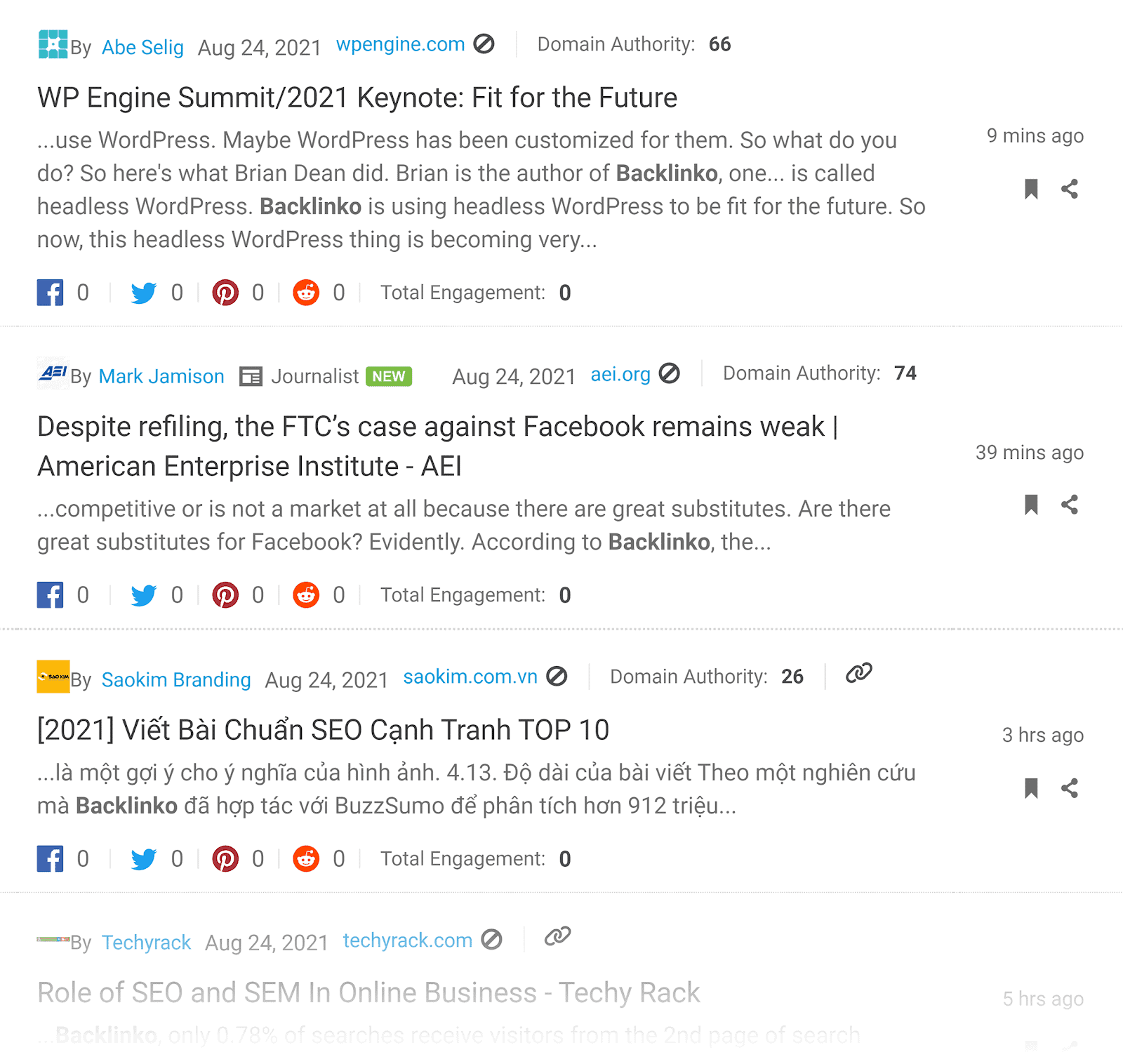
You can also filter mentions without links:
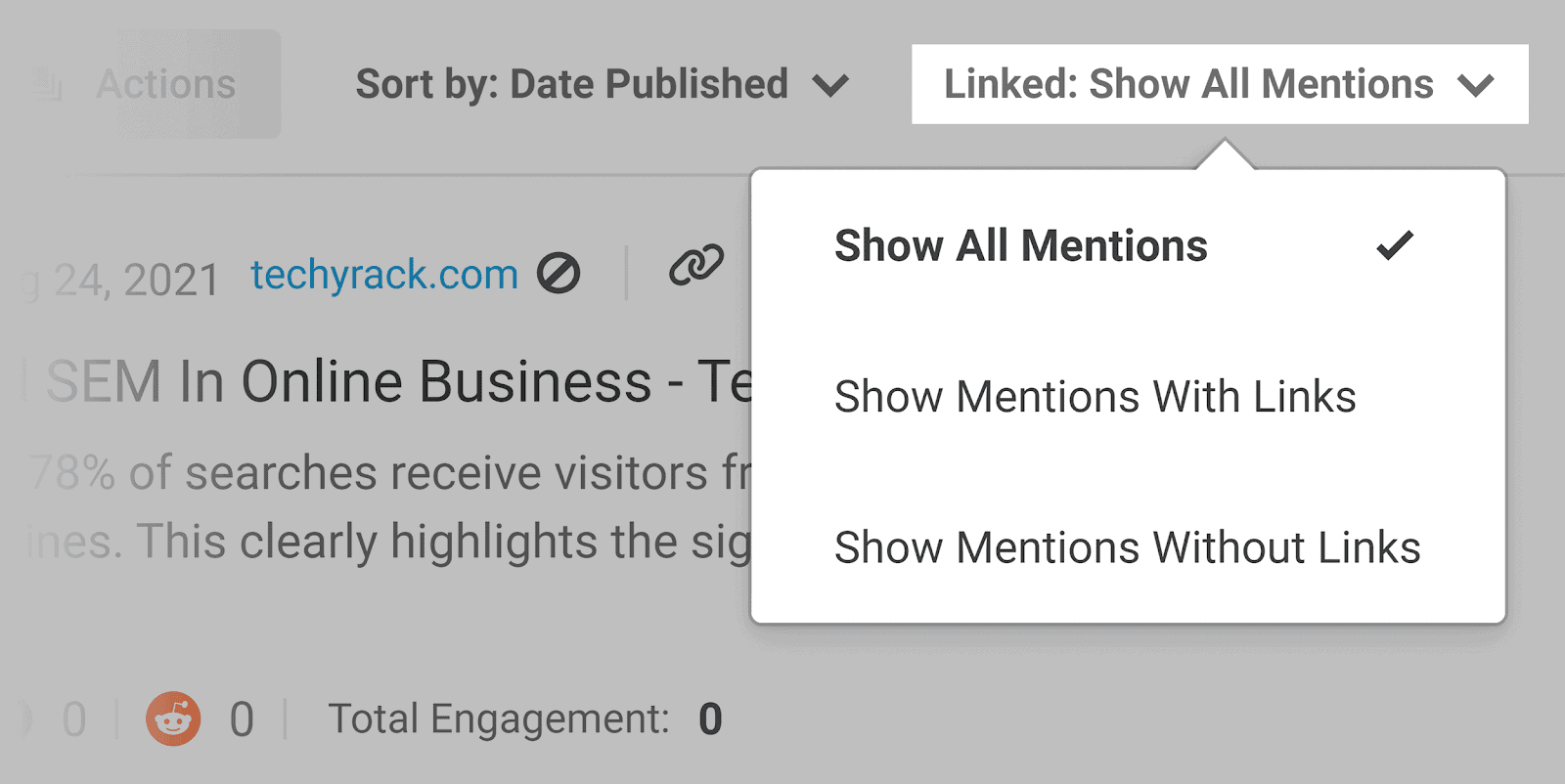
Easy peasy.
Buzzsumo offers a ton of other features than what I covered here. If you’re looking to learn more, I suggest reading my guide to Buzzsumo.
The bottom line
Sure, BuzzSumo isn’t designed for link building. But as you just saw, you can still use it to get white-hat links to your site. Recommended.
8. Ahrefs
Backlink data is powered by one of the world’s most active crawlers.
Ahrefs is a link building software designed for SEO pros.
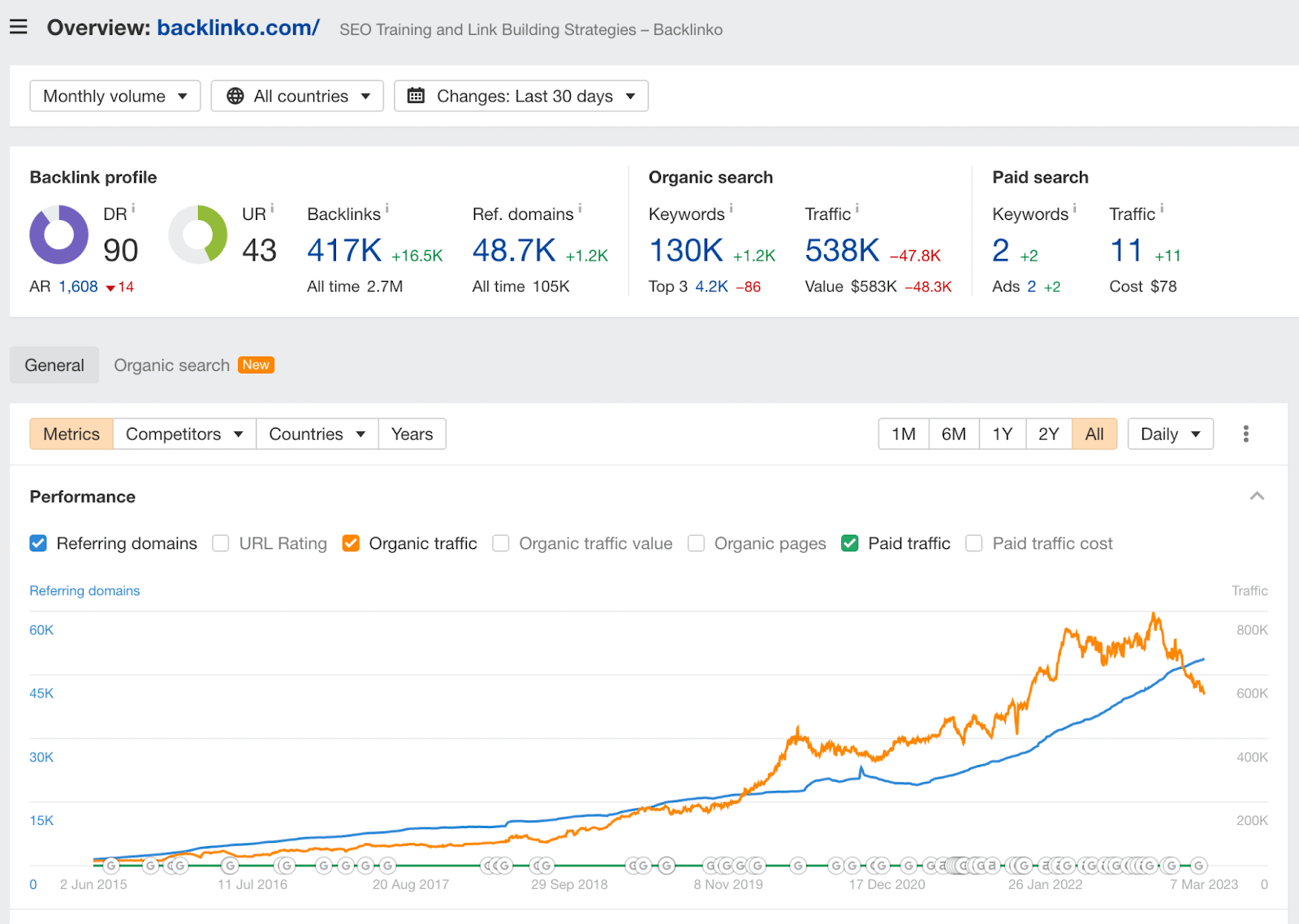
Much like Semrush, it also has a lot of features that have nothing to do with link building, like:
- Keyword research tool
- Content Explorer (similar to BuzzSumo)
- Rank tracking
- Technical SEO site audit
If you’re having a hard time deciding between Ahrefs and Semrush, check out my detailed comparison guide.
Pricing: $99-$999 per month
My Favorite Feature: Content Explorer
Ahrefs content explorer is a mini search engine for link builders.
For example, here’s a search I run every month to find mentions of Backlinko:
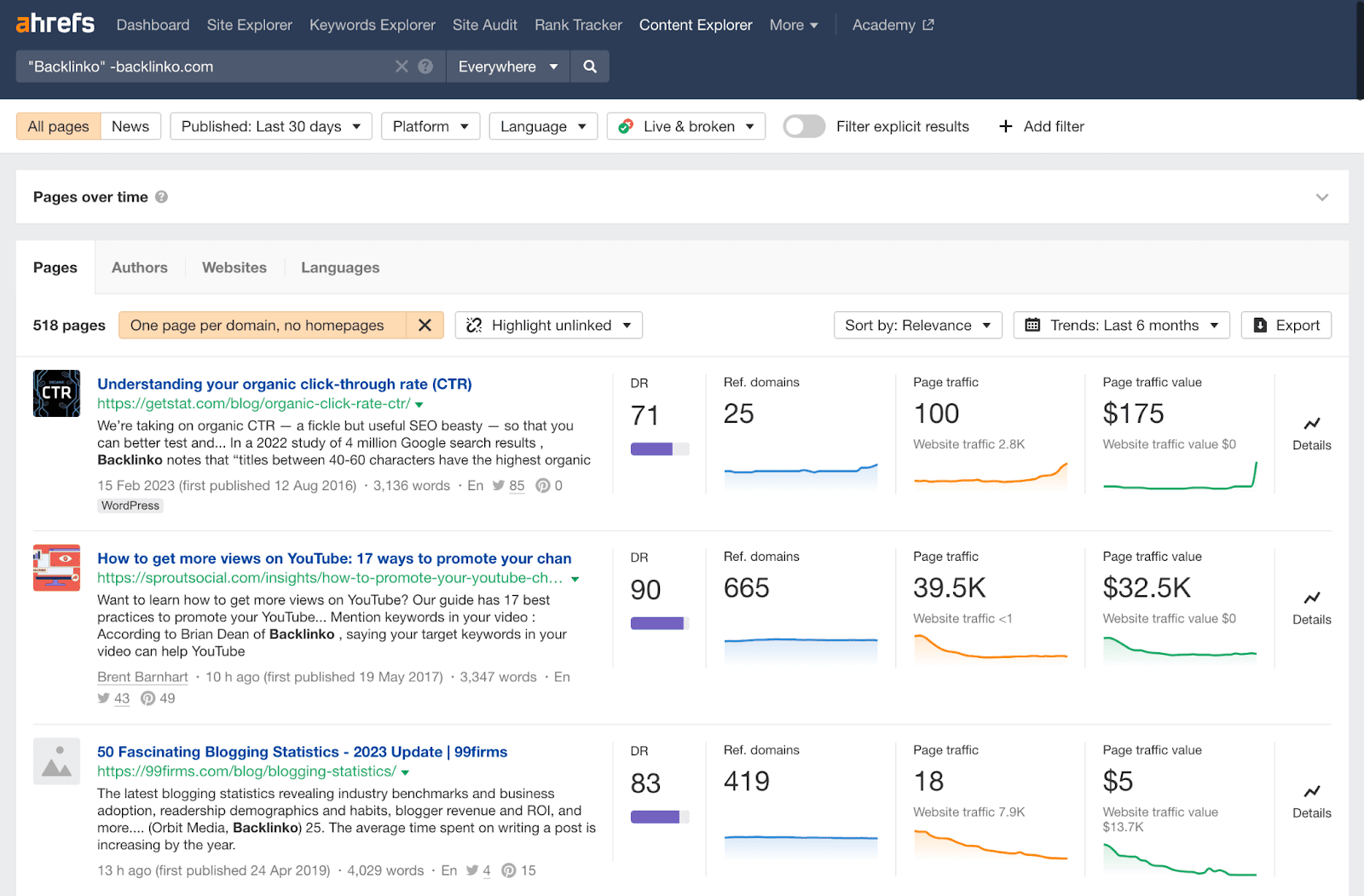
Then I use the “highlight unlinked mentions” to filter the sites that have never linked to me:

Here’s an example:

In my experience, a friendly “can you please link to us?” email can turn those unlinked brand mentions into legit backlinks:
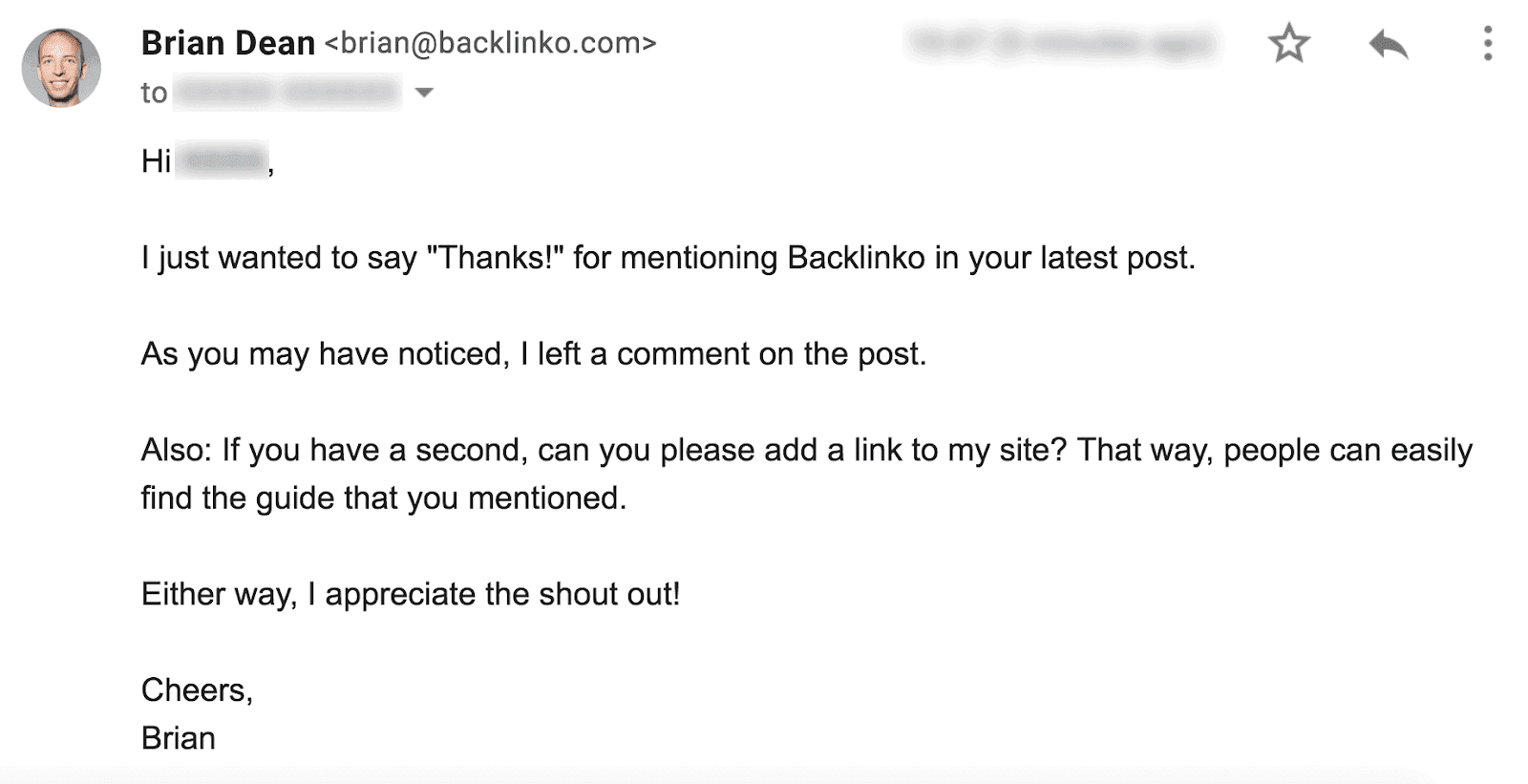
The bottom line
Ahrefs is the go-to SEO tool for pros. It’s a solid alternative to Semrush if you don’t mind the more complicated interface.
9. Moz Link Explorer
Reverse engineer your competitor’s backlinks.
Moz Link Explorer is the flagship feature of Moz Pro.
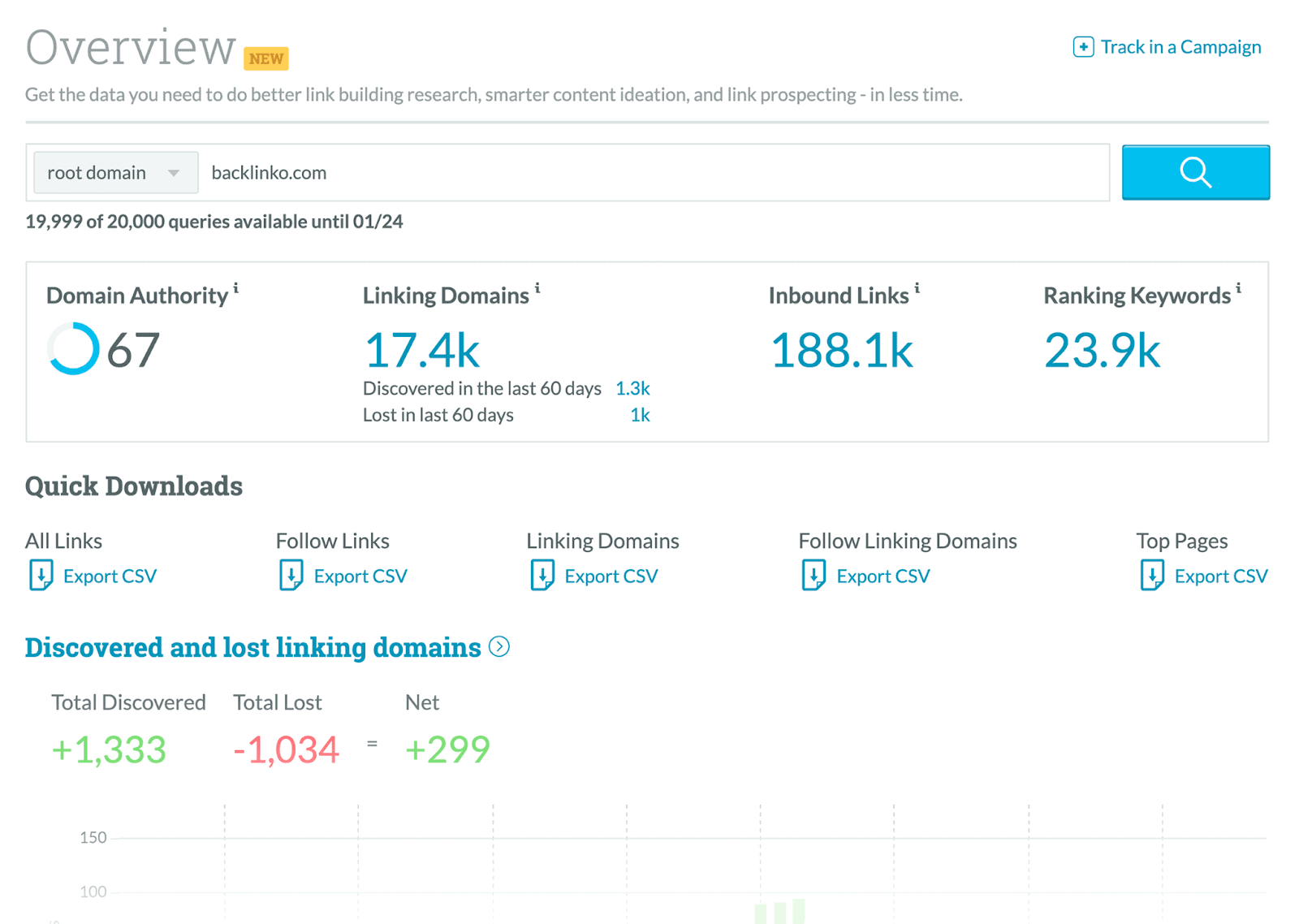
Let me show you how it works.
First, you pop a competitor’s domain (or specific URL) into it:
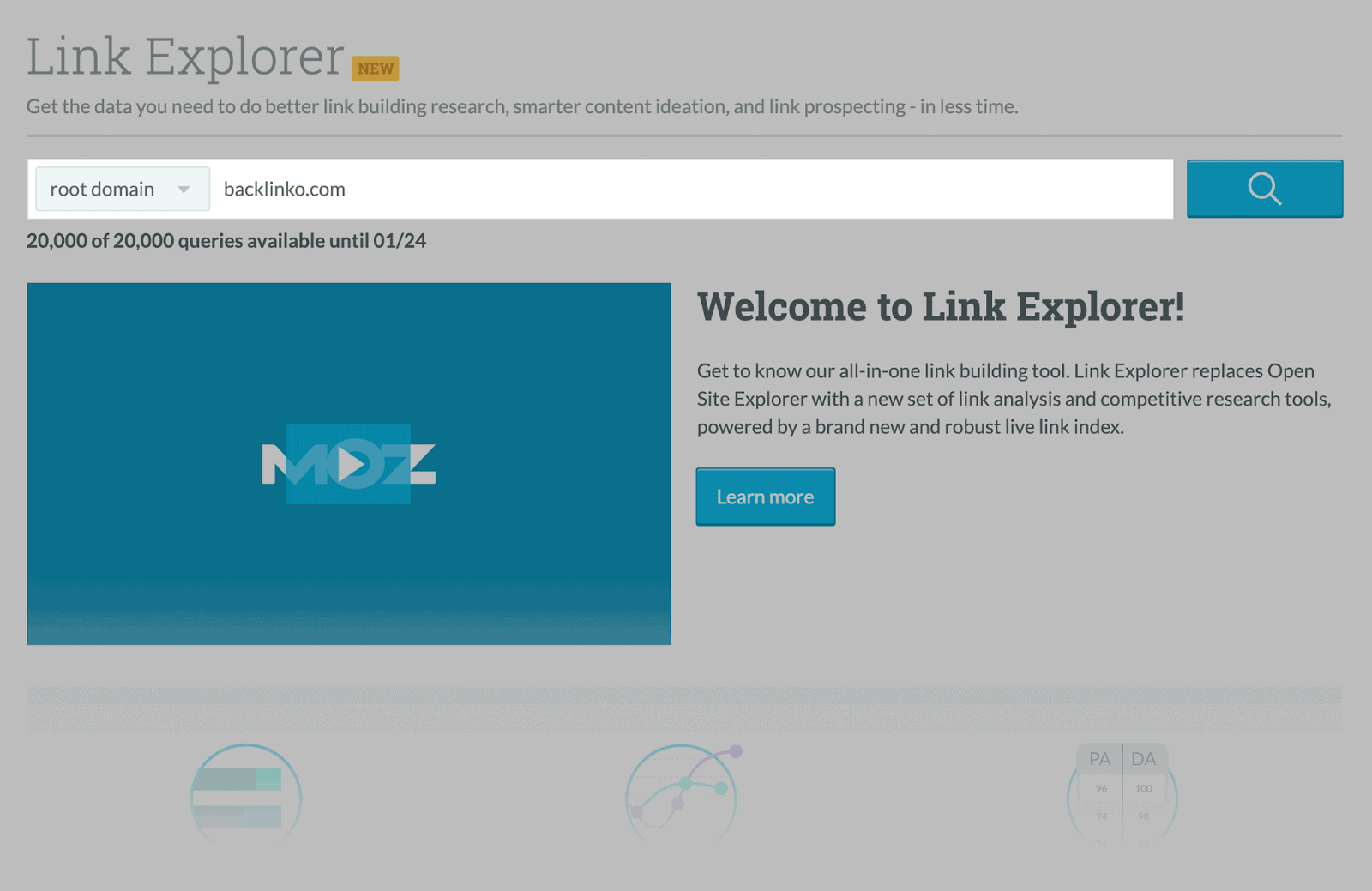
And you can see all of their backlinks:

You also get link metrics, like the site’s Domain Authority:
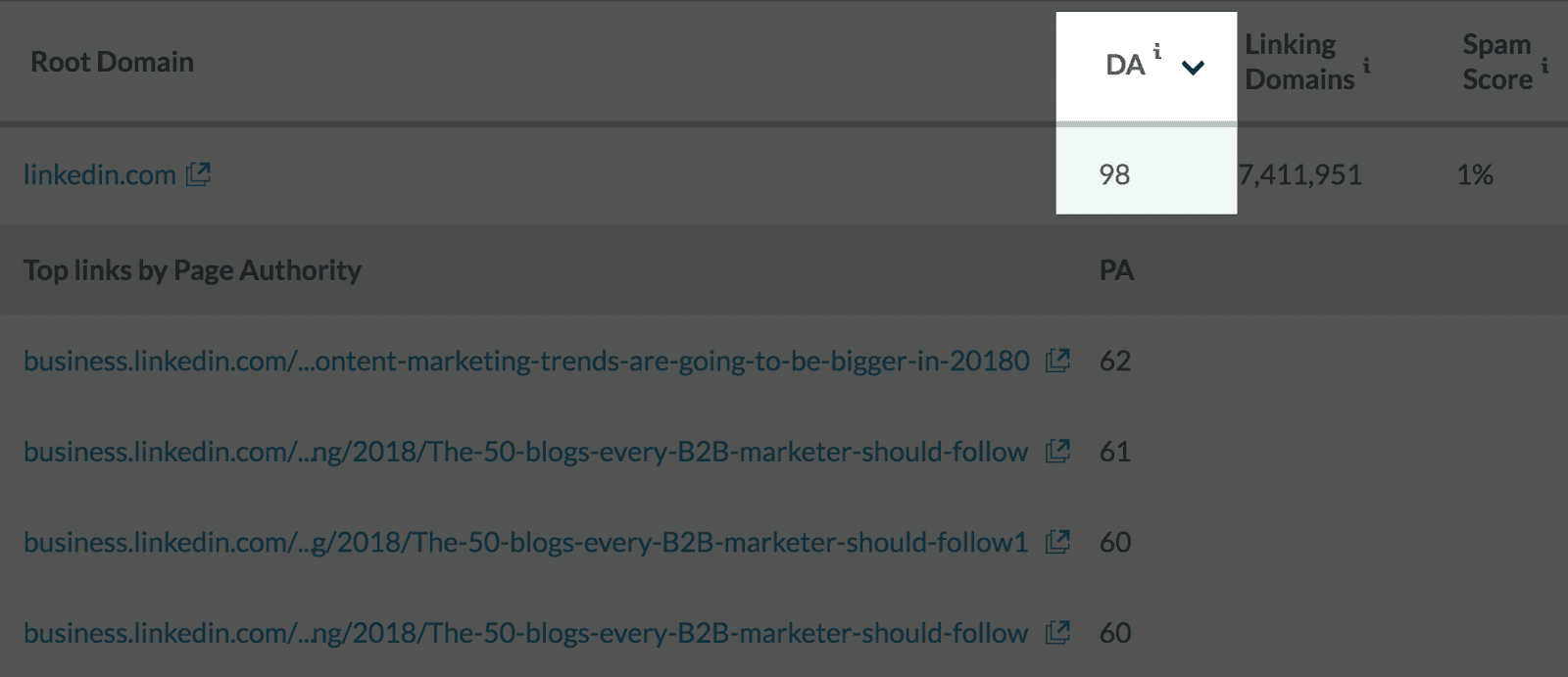
Pricing: $99-$599 per month
My Favorite Feature: Anchor Text Analysis
Quickly see the most common anchor text in a site’s backlink profile:
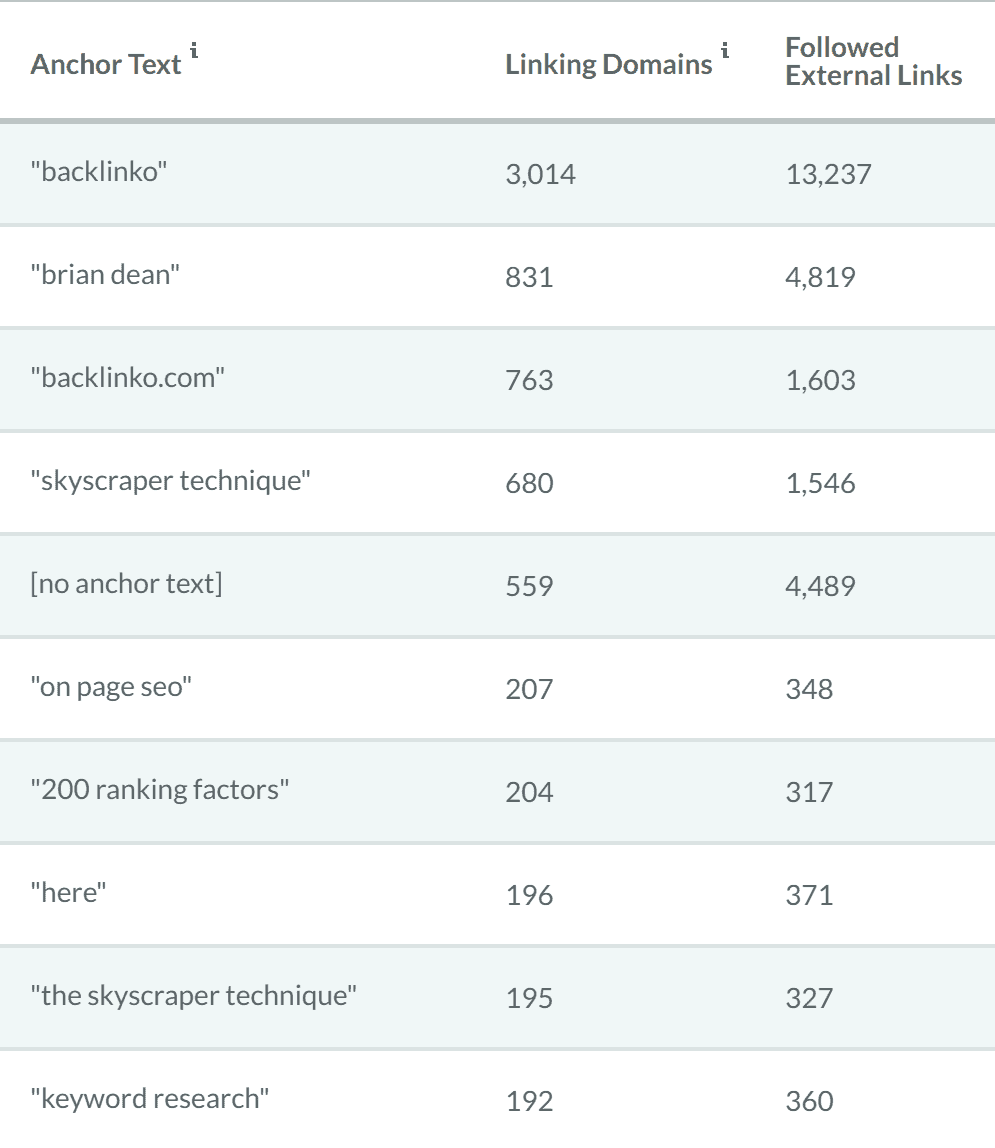
Why is this helpful?
Well, if you see lots of exact-match anchor text, that’s usually a sign of black hat link building.
The bottom line
Moz Link Explorer is the third-best link analysis tool on the market. That said, a Moz subscription comes with several other tools (like an on-page grader) that can make the investment worthwhile.
10. Majestic
Link analysis on a budget.
Majestic is yet another backlink analysis tool.
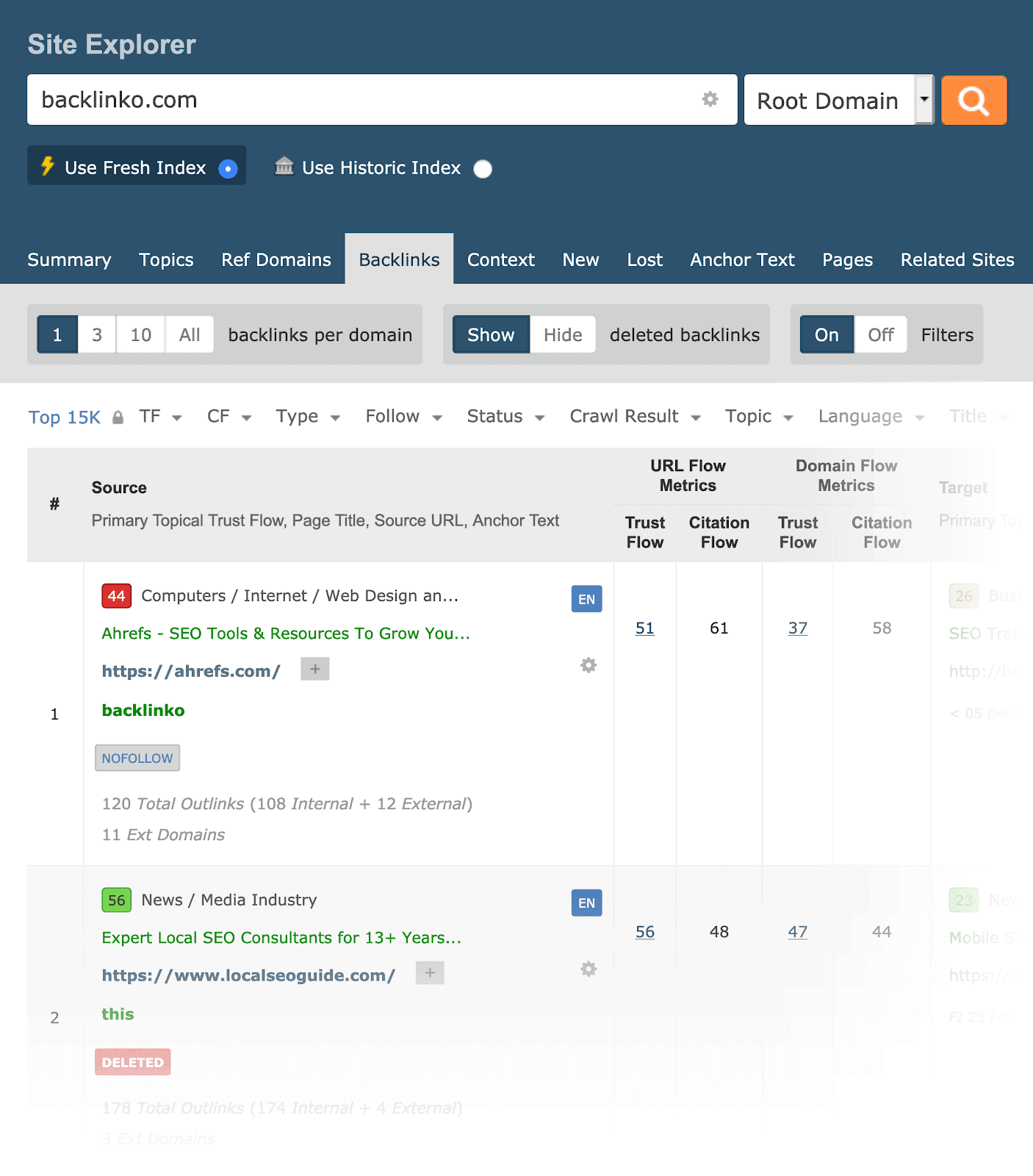
It has the features you’d expect… like the number of backlinks, referring domains, and anchor text analysis.

Pricing: $49-$399 per month
My Favorite Feature: Topical Trust Flow
This metric measures how many links a site has from a set of highly-trusted “seed” websites.
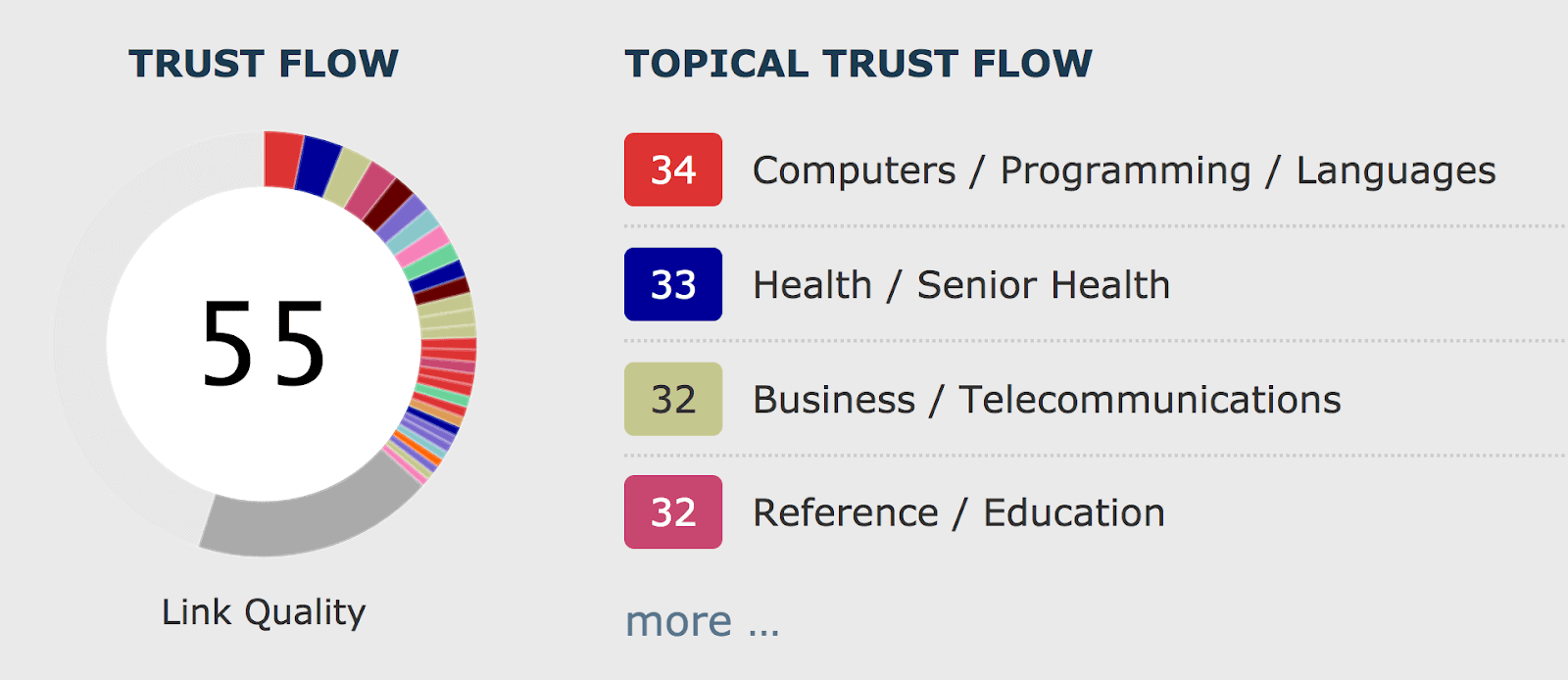
(It’s basically Majestic’s version of TrustRank.)
I recommend checking out my Majestic review if you want an in-depth overview.
The bottom line
Majestic SEO has a massive link database. But the UX is ancient and hard to use. That said, you definitely get your money’s worth at $50/month.
Bonus: Google
Find link building prospects for free.
Okay, this one isn’t a tool in the same sense as other items on this list.
But good ‘ol Google has the world’s largest index of websites – making it a gold mine of link-building opportunities.

Pricing: Free
My Favorite Feature: advanced search operators
Google search operators give superpowers to your searches.
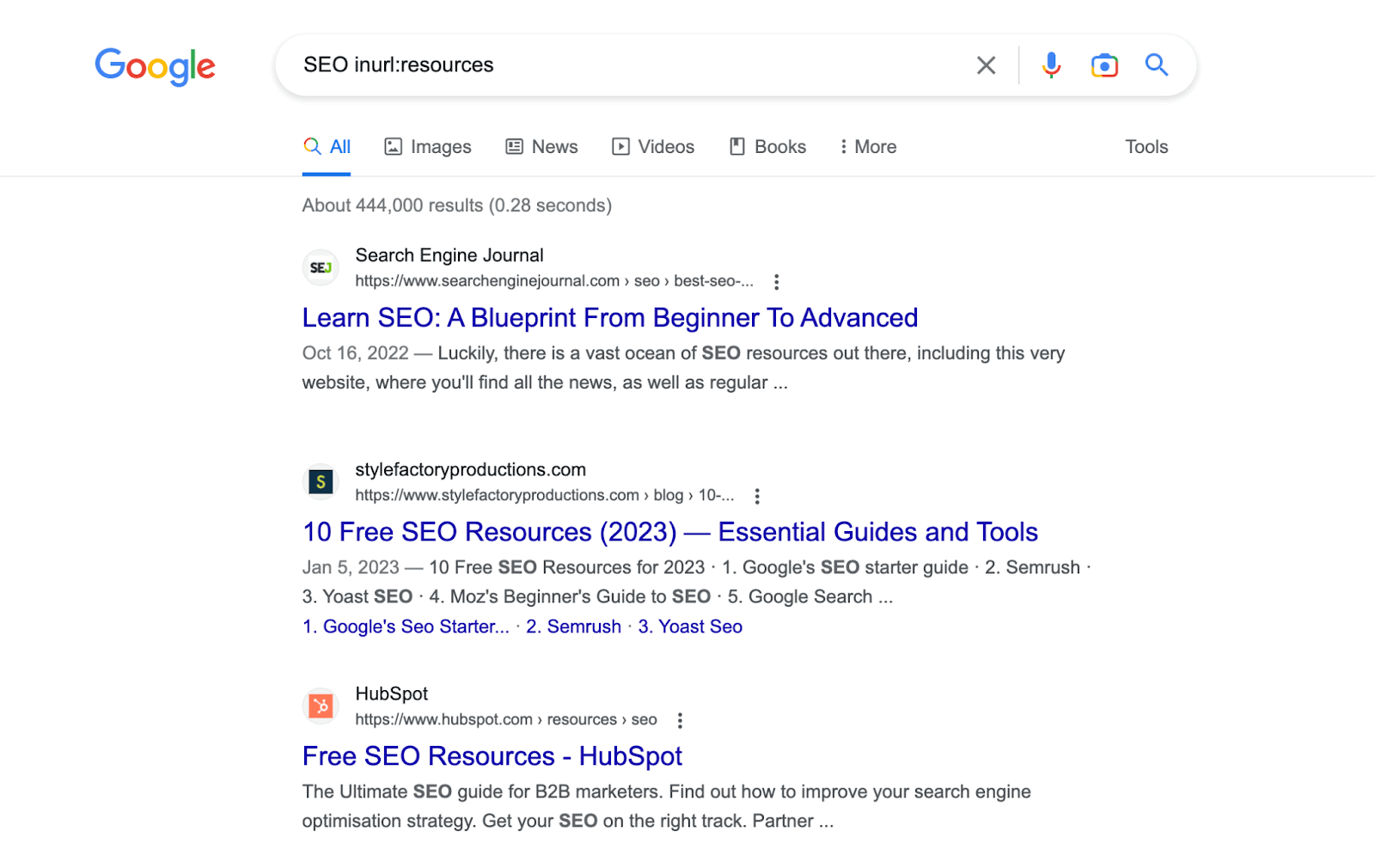
Here are the most useful operators for link building:
- “inurl:” – only returns results with specific words/phrases in the URL.
- “intext:” – specifies keywords or phrases mentioned in the content.
- “intitle:” – same as intext, but only applies to the results’ titles.
For example:
SEO inurl:resources
It returns resource pages about SEO, where you can pitch your content to be included.
Like this one:
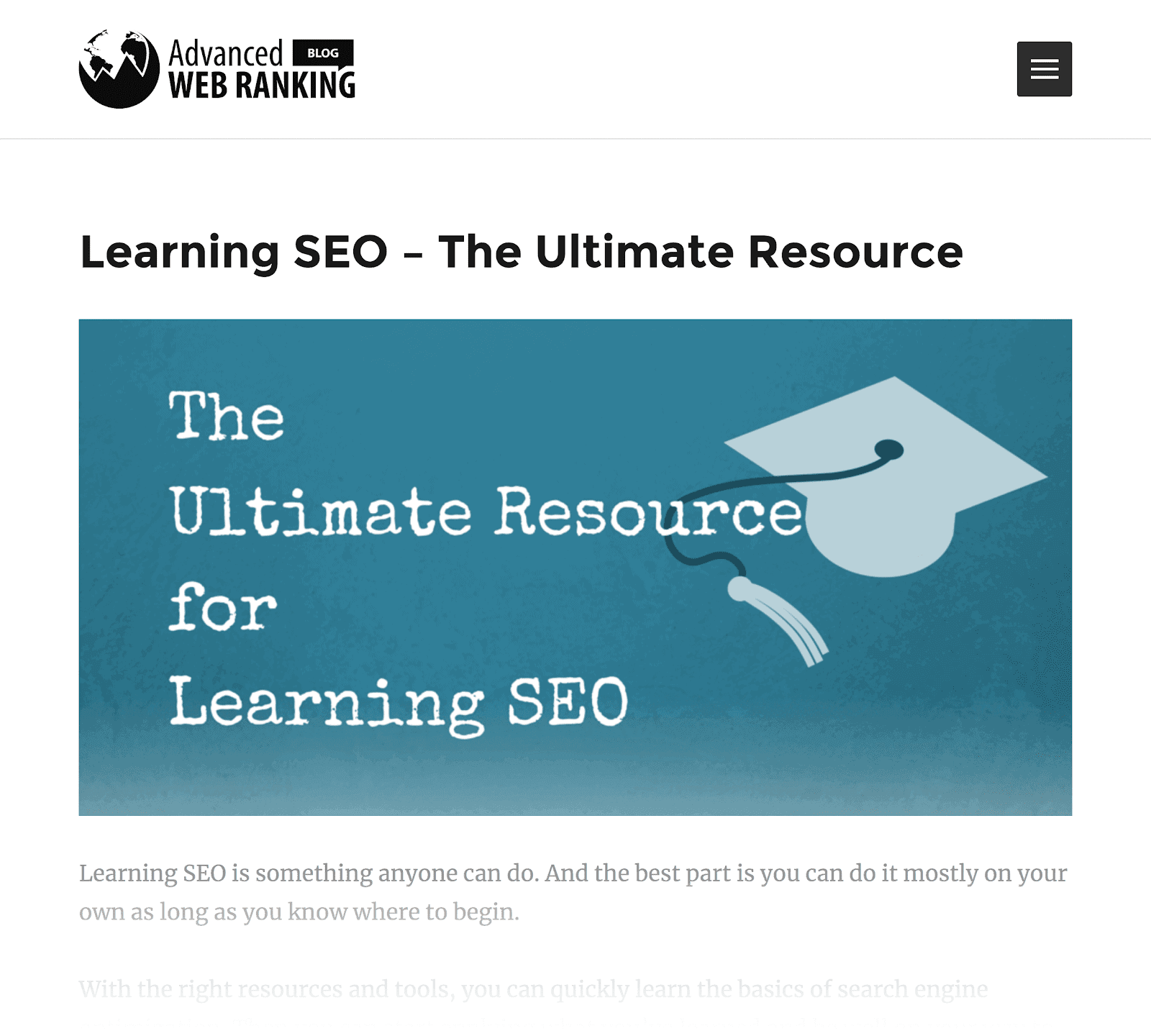
Very cool.
The bottom line
Google search operators are the easiest way to find link building opportunities.
Any Tools That I Missed?
Those are my top 10 link building tools.
The question is:
How do you choose the best one for you?
Here’s a quick checklist to help you decide:
- “What budget do I have to work with?” – If you’re so shoestring that you can’t afford shoestrings, Google searches are always free. That said, outreach tools usually make the process faster and more efficient.
- “How many people need to use the tool?” – If you’re the only one who builds links, then you don’t need to worry about user accounts and features designed for teams. But if you do outreach with a team, tools like Semrush or Respona are a must.
- “How many links can I see?” – Backlink analysis tools like Semrush, Moz, and Ahrefs give you the most competitor link data. Others might be cheaper… but you get what you pay for.
- “How important is reporting?” – Are you reporting to clients? If so, detailed (and nice-looking) reporting features can be massively helpful.
Backlinko is owned by Semrush. We’re still obsessed with bringing you world-class SEO insights, backed by hands-on experience. Unless otherwise noted, this content was written by either an employee or paid contractor of Semrush Inc.